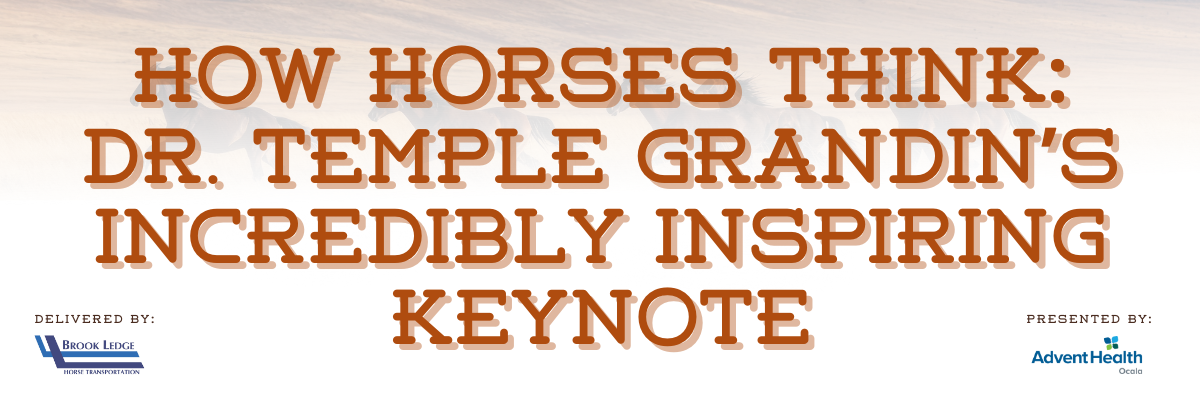
What an incredibly inspiring keynote presentation by Dr. Temple Grandin at Horse Farms Forever’s sixth annual Conservation Summit held on Thursday, November 13th at Ocala Breeders’ Sales Arena. With a sold-out crowd of nearly 600 guests, you could feel the excitement and the energy in the room!
Dr. Grandin is one of the worlds most renowned scientists and it was a true honor to hear her speak about her insights into animal behavior and her own personal experience and research on autism. Her remarks about How Horses Think, were deeply insightful, backed by concrete examples, and peppered with witty, humorous comments!
This year’s Summit highlighted the deep-rooted bond between horses and humans. Dr. Grandin shares this deep bond with horses. While she was growing up, horses provided solace and meaning for her as a teenager as she attended a boarding school with an equine program.
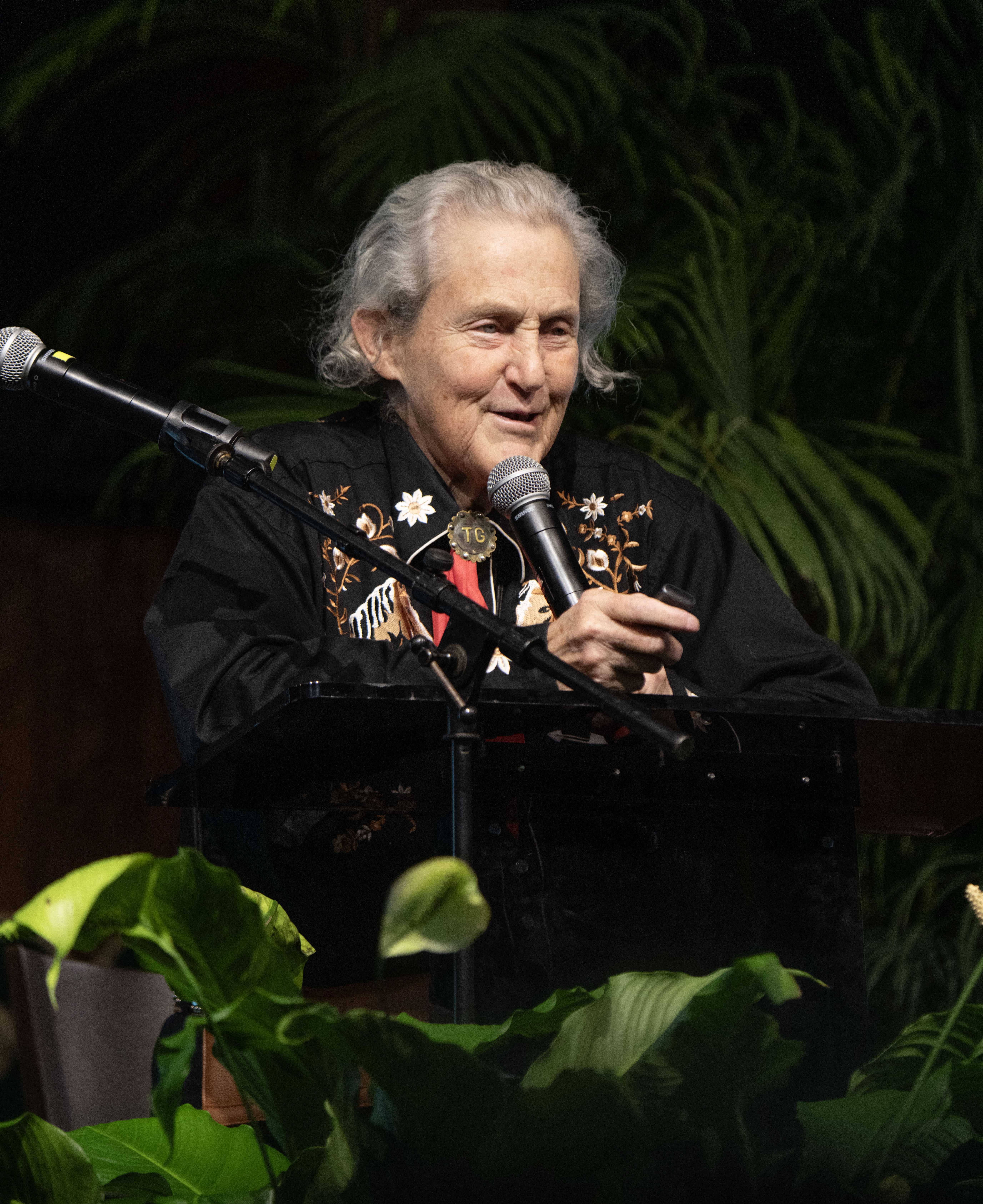
Event Photos Courtesy of: Sean Dowie
Horses to the Rescue
During high school, Dr. Grandin was bullied, but she found a refuge at the school’s horse barn, which was part of the school’s educational program.
“The only place I was not bullied was with the horses,” she said. “That was the one place. They basically saved my teenage years. I had friends through riding horses and going to shows and I also learned how to work. I had nine stalls to clean and I had to run a horse barn.”
Working with horses and with the strong influence from her mother and her high school science teacher gave her the confidence to pursue her research on animal behavior and livestock welfare. In 1989, she earned her Ph.D. in Animal Science from the University of Illinois. Dr. Grandin is now a Distinguished Professor of Animal Science at Colorado State University.
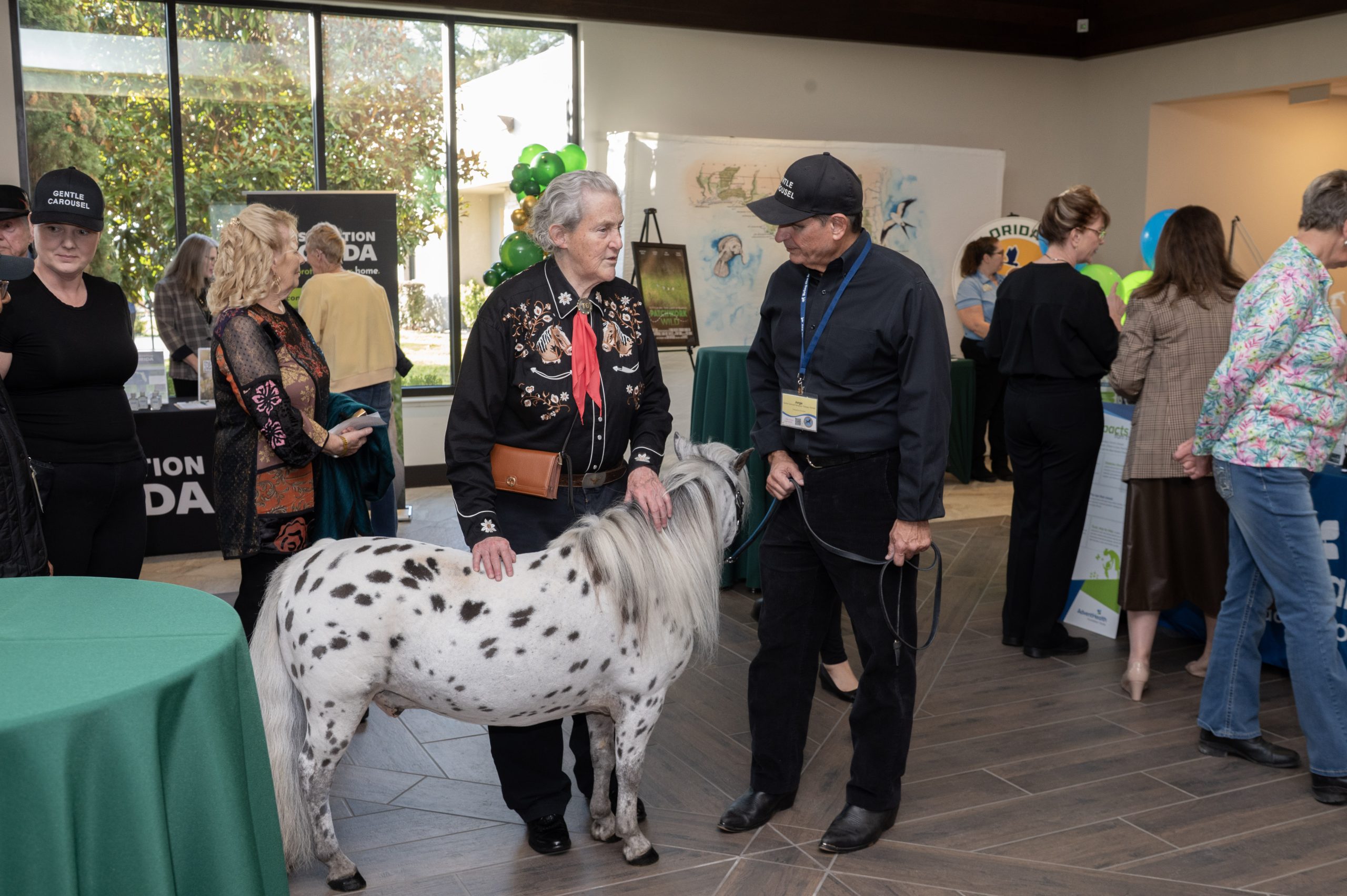
Dr. Temple Grandin with Jorge Garcia-Bengochea of Gentle Carousel Miniature Therapy Horses
Animals Think in Pictures
Through Dr. Grandin’s own experiences with autism, and her career as a scientist, led her to the realization that she thinks in pictures, and that animals also think in pictures.
“My memory is like the pictures on your phone,” she said.
This unique perspective gave her an advantage to understanding animal behavior. While her research is primarily about cattle, her research and observations also apply to horses and other animals. “If you want to understand a horse or any animal, you have to get away from words,” said Dr. Grandin. “It’s a sensory-based world; it’s not a word-based world. What is it seeing? Some of the first work I ever did with cattle, I got into the cattle handling facility, and I saw they were scared of shadows and reflections. These are things we don’t normally think about.”
When Dr. Grandin was in her late 30s, she discovered that there are different types of thought, such as word or mathematical thinkers.
“It was a shock to me that a lot of people are not visual thinkers, they may be mathematical thinkers, word thinkers or maybe mixtures,” said Dr. Grandin. “When you realize that people think differently, you get a lot of insight. You get a lot of insight into horses and other animals when I realized other people didn’t think in pictures.”
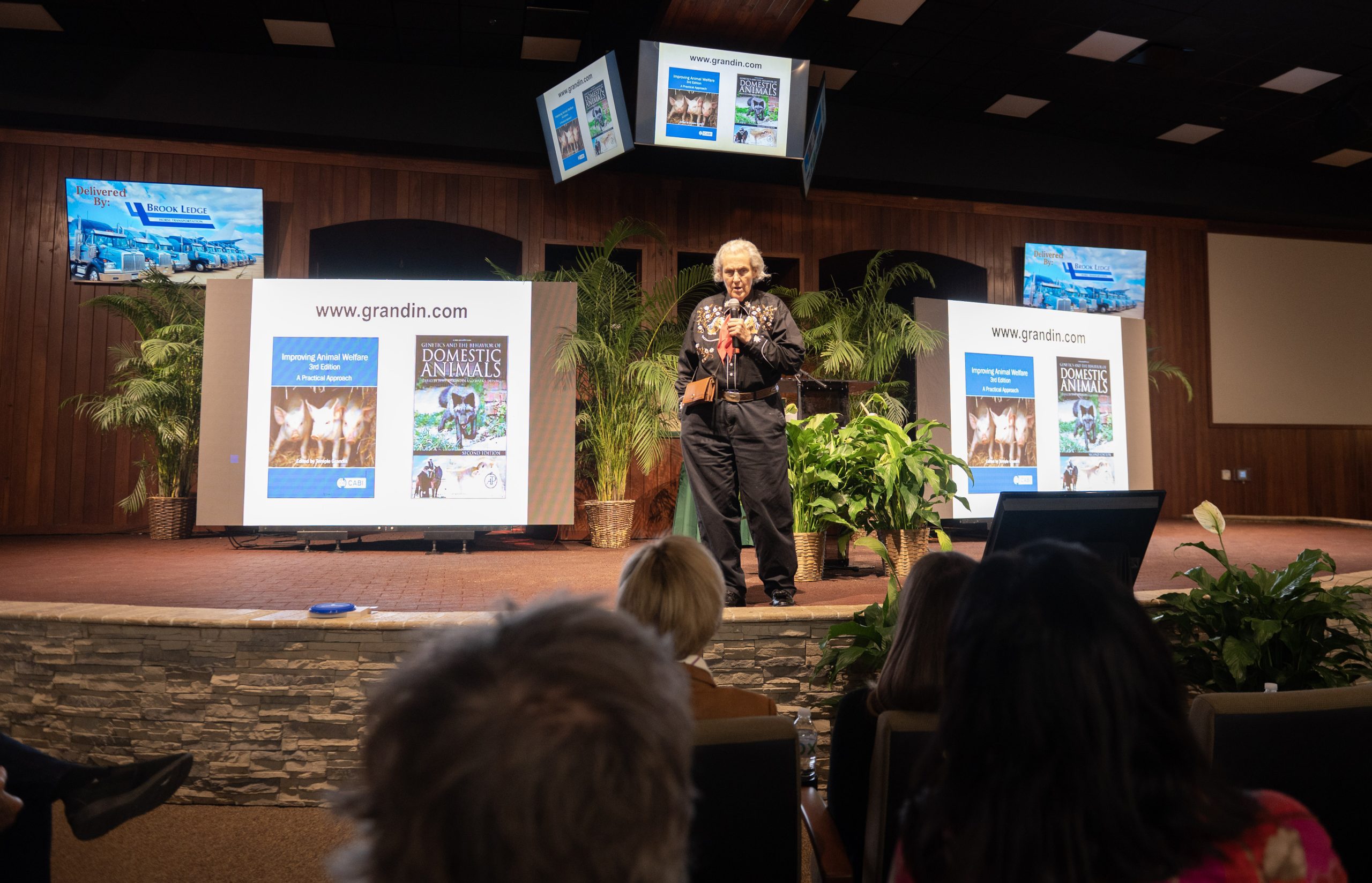
Dr. Temple Grandin’s keynote presentation was titled “How Horses Think.”
Behavior of Horses
Dr. Grandin’s presentation provided many fascinating and enlightening insights about horses and animal behavior. Horses don’t have language, they store memories of good or bad things as a picture, a smell, a touch, or something they hear.
- To desensitize horses to new objects, it’s best to allow the horses to voluntarily approach the object. “It’s scary if you shove it in their face; that’s something that you don’t want to do,” she said. “If you want to get horses used to flags at shows, let’s decorate the pasture fence with flags, and let your animals walk up to it.”
- Dr. Grandin also shared an example of a horse that was scared of black hats. Horses associate what they see when something bad happens to them. “There’s a horse I talk about who is scared to death of black hats. White hats are fine; black hats are bad,” she said. “It’s sensory-based, not word-based.”
- Dr. Grandin also described horses she watched at a dressage show that were competing in a cool, indoor arena but were dripping with sweat. She noted that the horse that won was calm and relaxed.
- It takes 20 to 30 minutes for horses to calm down. “If something happens suddenly, it’s scary to animals. It’s also scary to people with autism,” said Dr. Grandin.
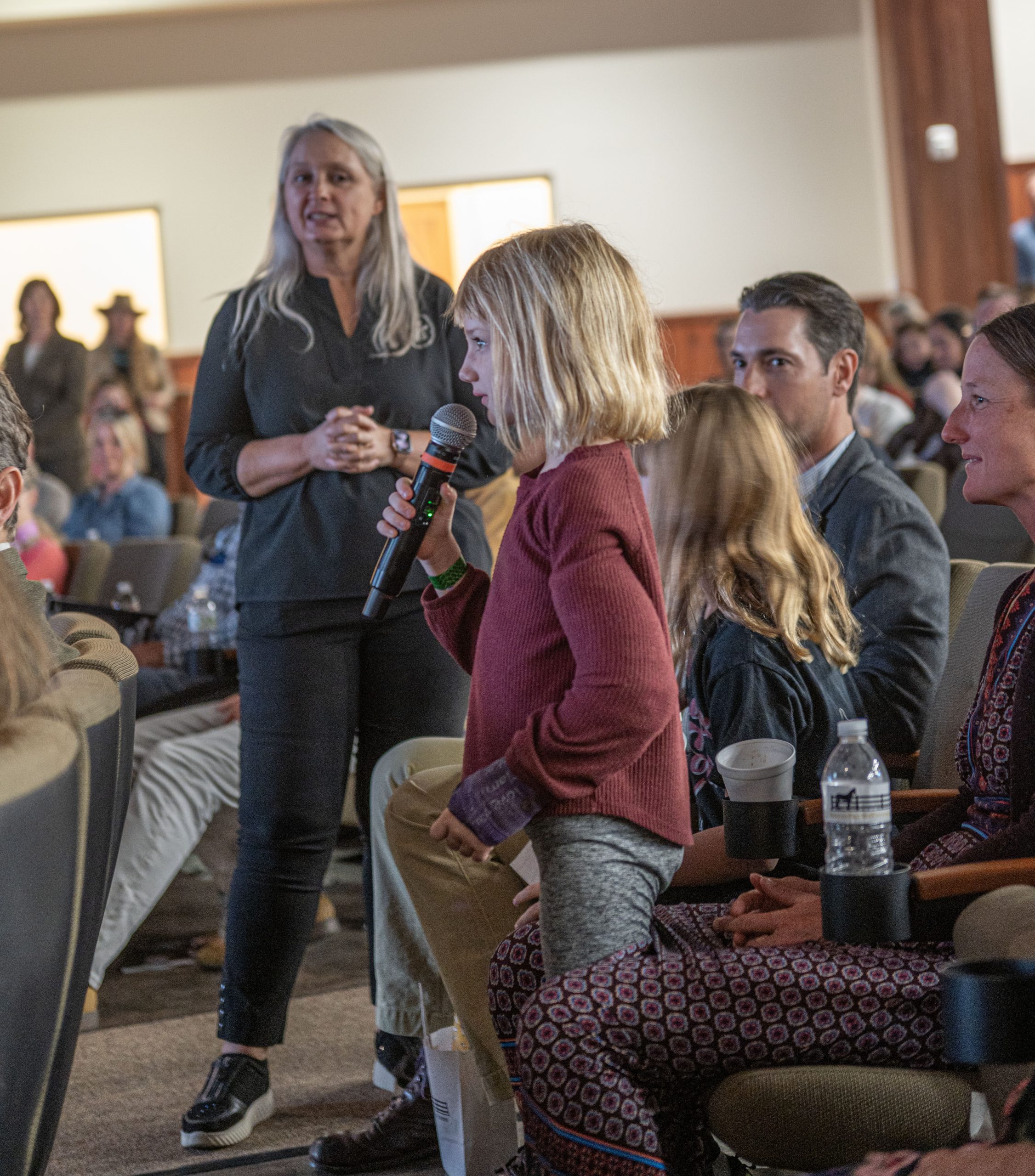
Logan Freeman, a member of the 4-H club – Reddick Collier Elementary Wranglers – asked Dr. Temple Grandin an important question: “How does the squeeze machine calm you and other animals down?”
Groundbreaking Research
Her groundbreaking innovations in the humane handling of livestock are used by many companies around the world. She has also been instrumental in implementing animal welfare auditing programs that are used by McDonalds, Wendy’s, Whole Foods, and other corporations. Temple has appeared on numerous TV shows such as 20/20 and Prime Time.
She is the author of twelve books on autism and animal behavior, including the national bestsellers Calling All Minds, Thinking in Pictures, and Animals in Translation. Temple was inducted into the National Women’s Hall of Fame in September 2017. In 2010, she was named to Time magazine’s list of the 100 people who most affect the world.
She is perhaps best known for the award-winning HBO film Temple Grandin, which brought her groundbreaking innovations in the humane handling of livestock to a global audience and highlighted her remarkable life and achievements.
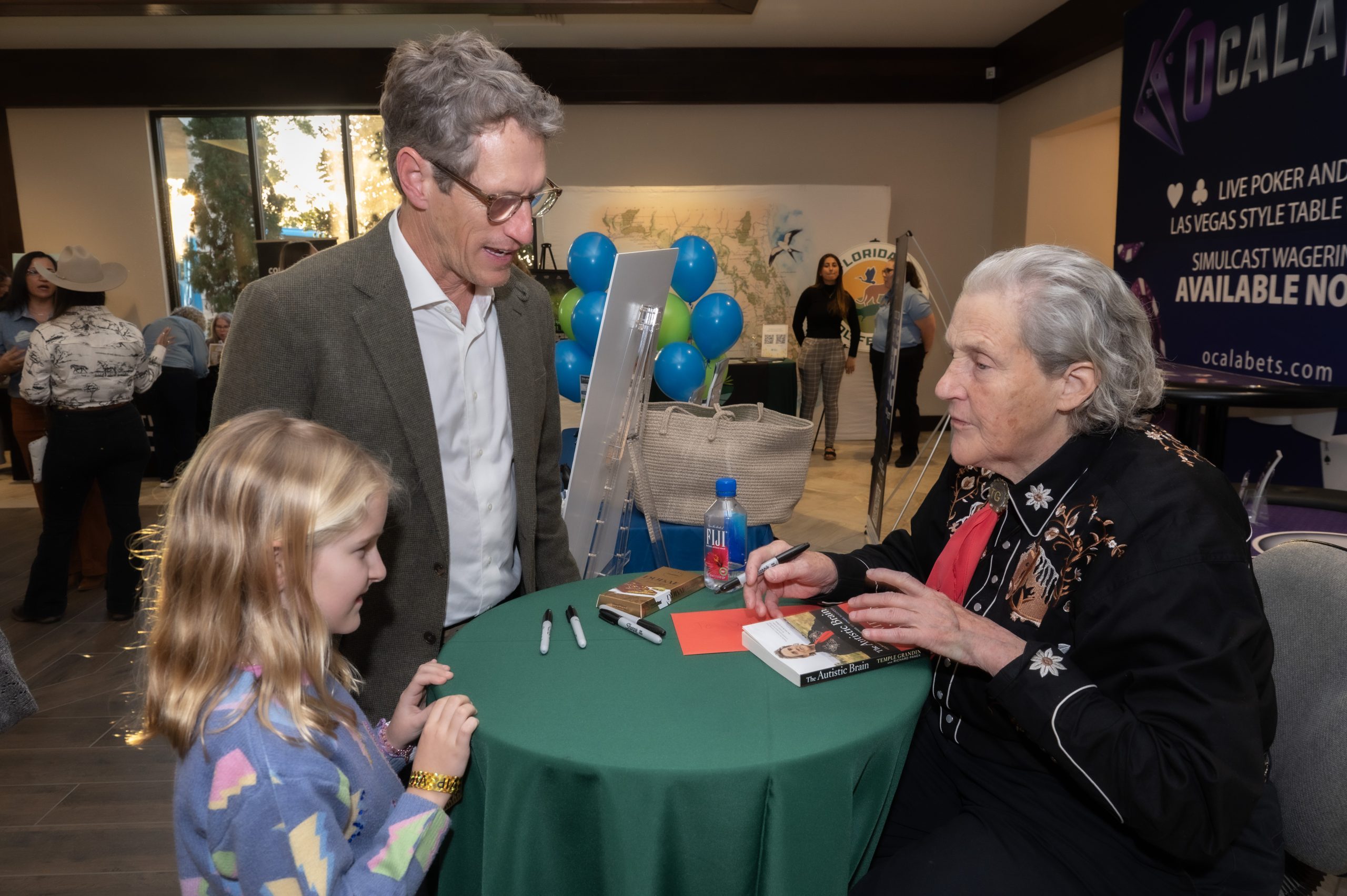
Dr. Temple Grandin signs a book for Nell Ward with her father Carlton Ward, Jr.
National Portrait Gallery
Dr. Temple Grandin’s portrait in the Smithsonian Institution’s National Portrait Gallery in Washington, D.C., was unveiled Friday, Nov. 14, 2025.
Included in the gallery will be Brocken Spectre and Glory: Portrait of Temple Grandin, an oil painting by artist David Lenz. The National Portrait Gallery acquired the piece as part of its Portrait of a Nation program, which honors individuals who have made transformative contributions to the United States.
The Smithsonian Institution is the world’s largest museum, education and research complex. Its National Portrait Gallery highlights Americans of remarkable character and achievement, who remind visitors of who we are as a nation and what we can aspire to be.
Watch The Recap
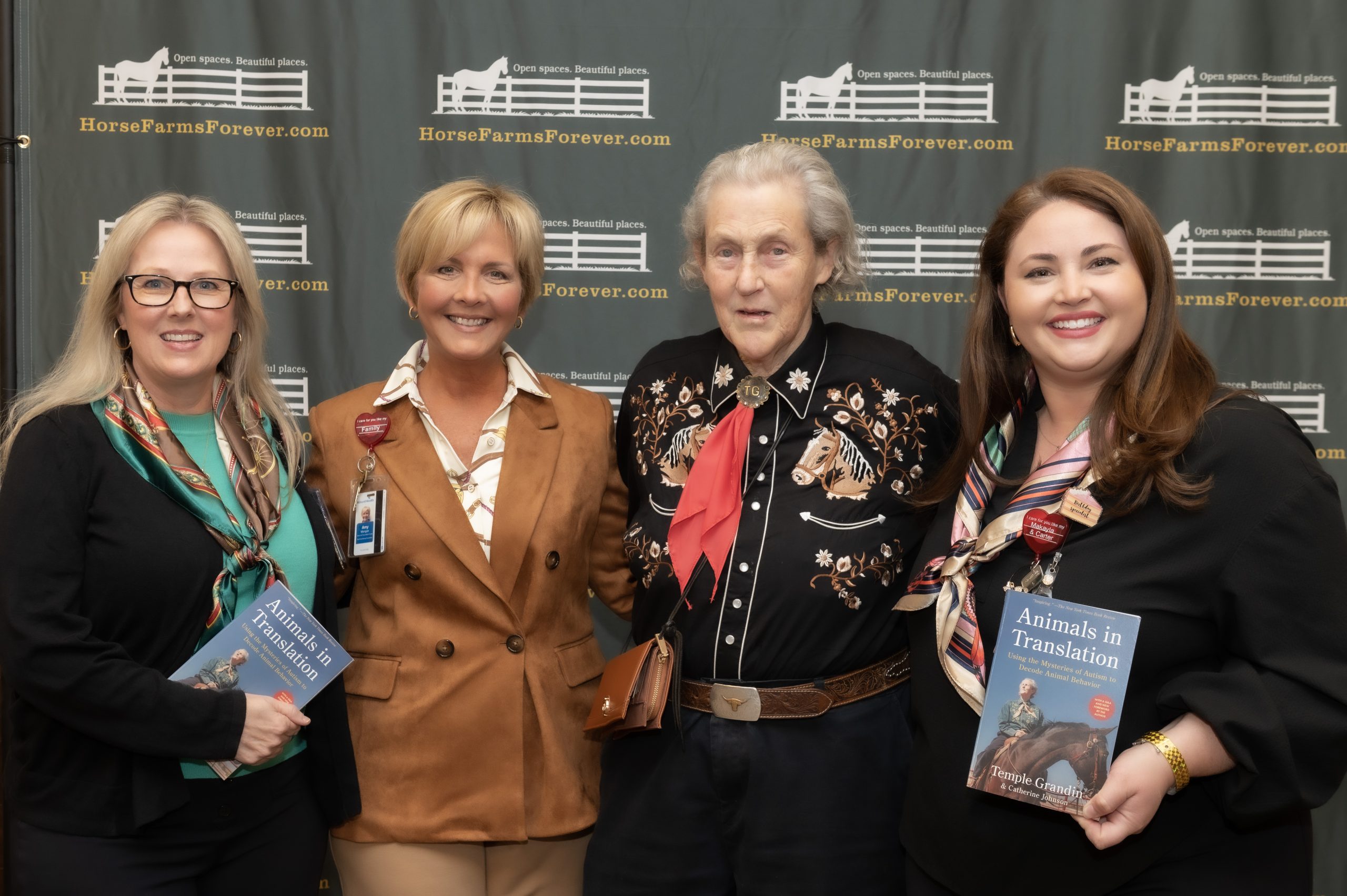
Sub Heading
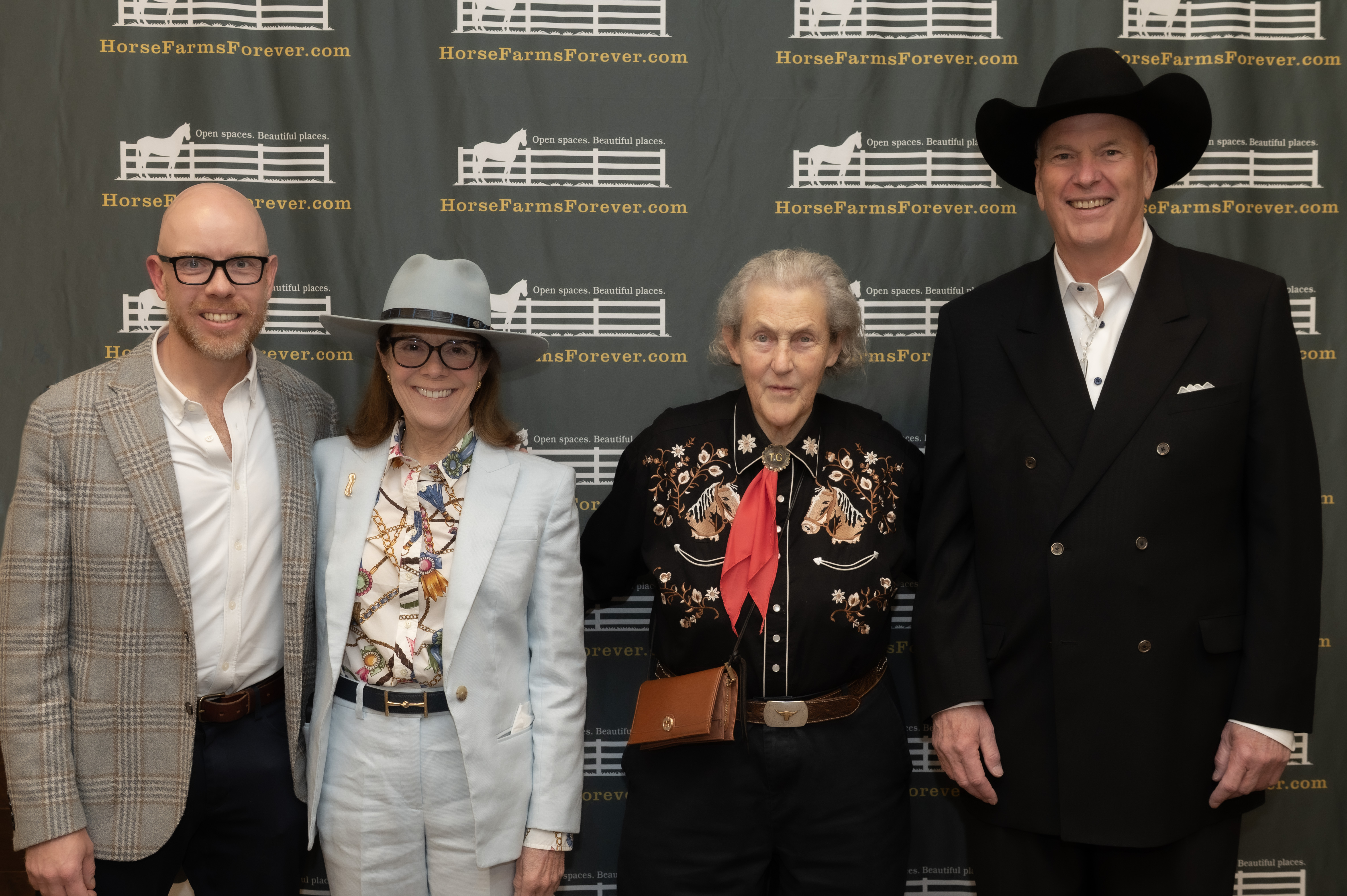
Sub Heading
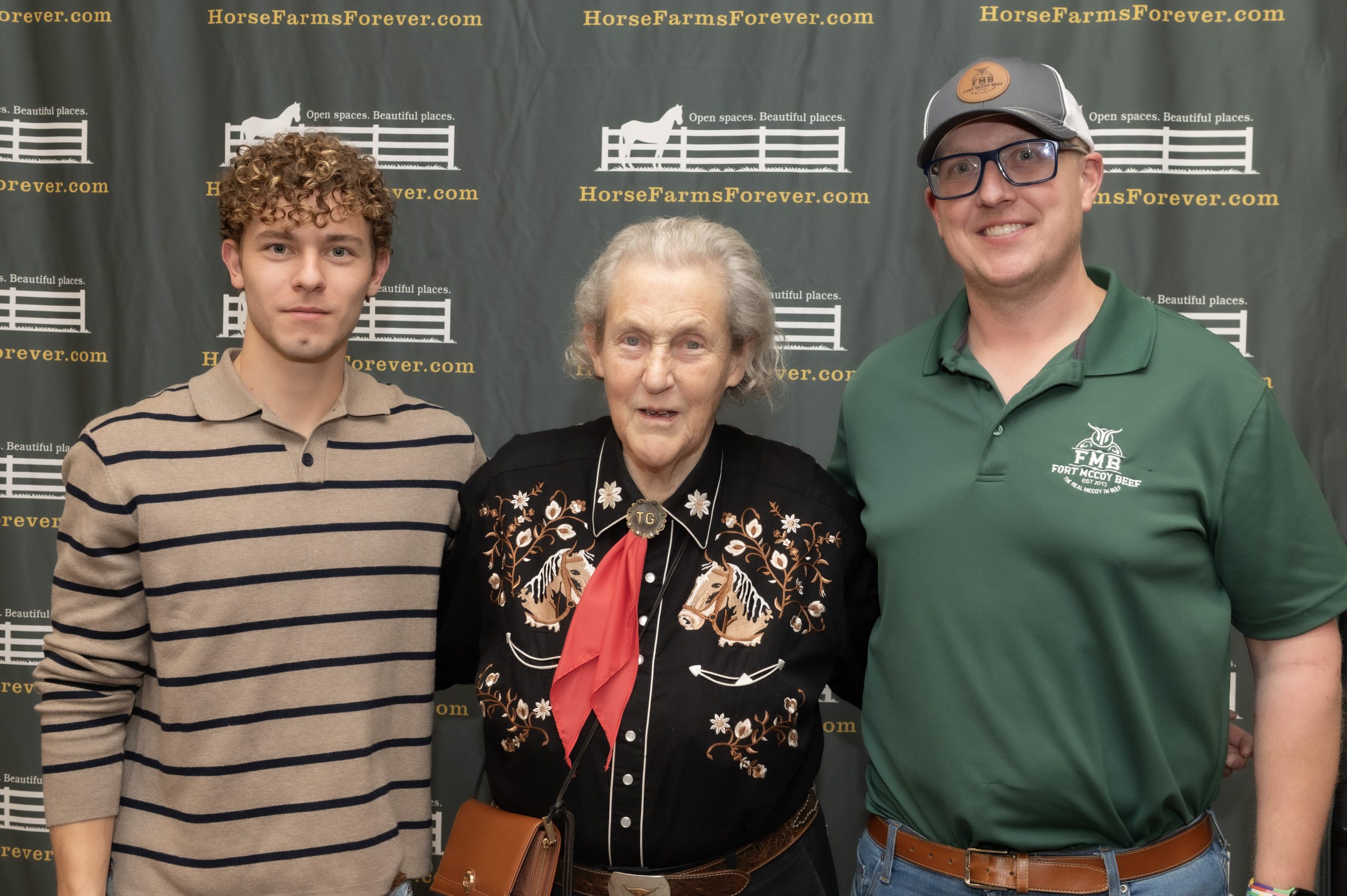
Sub Heading
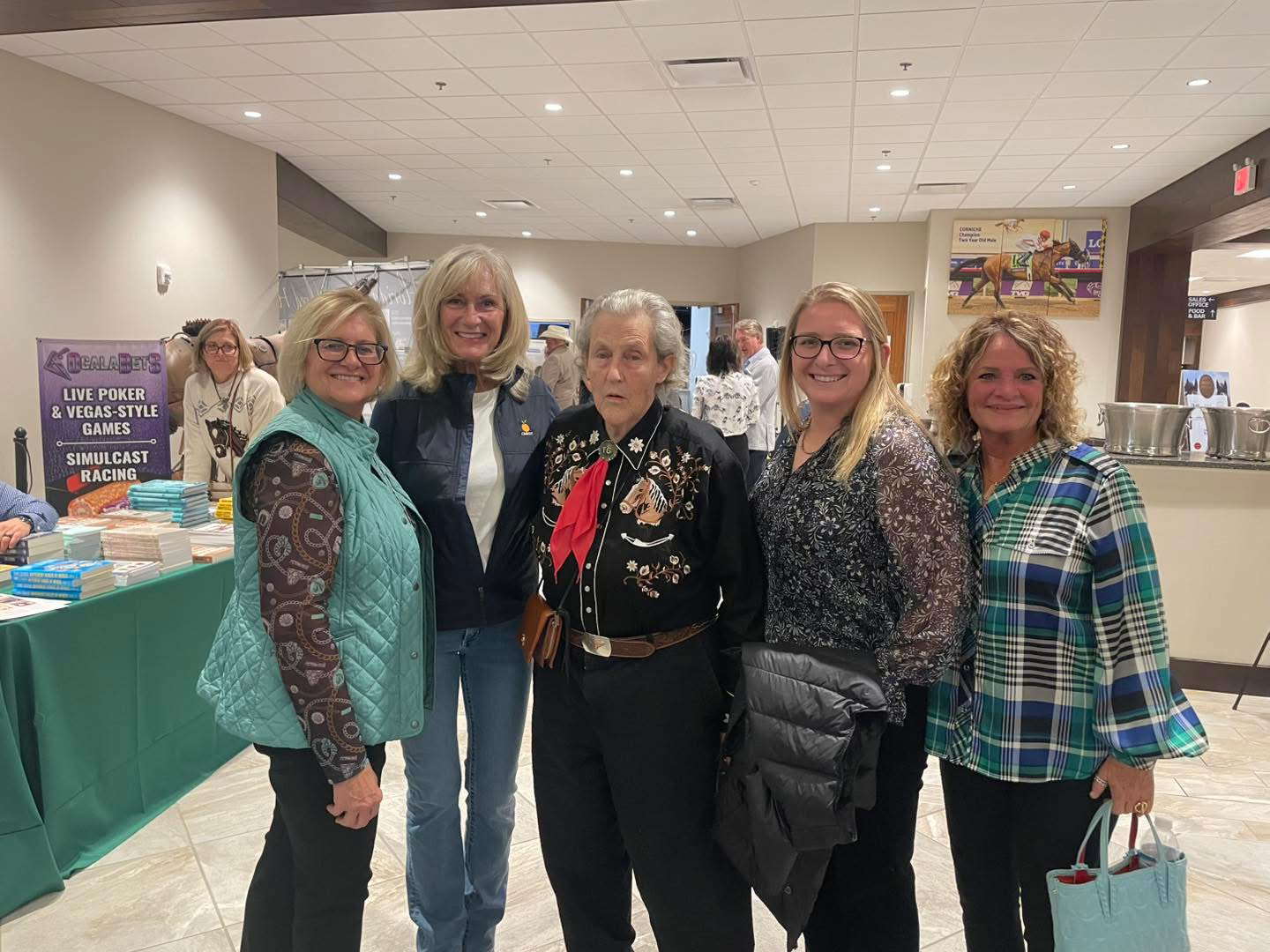
Sub Heading
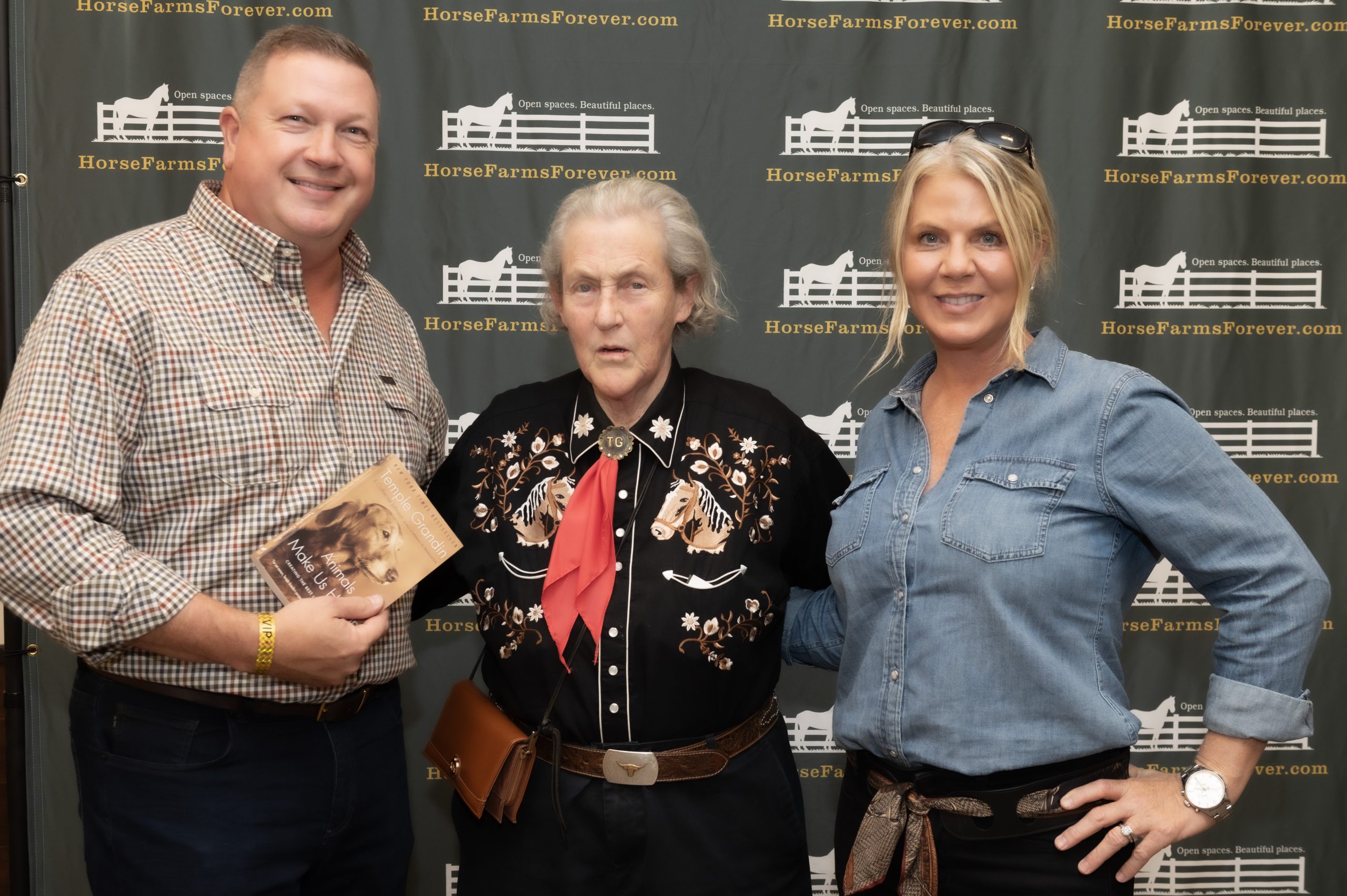
Sub Heading
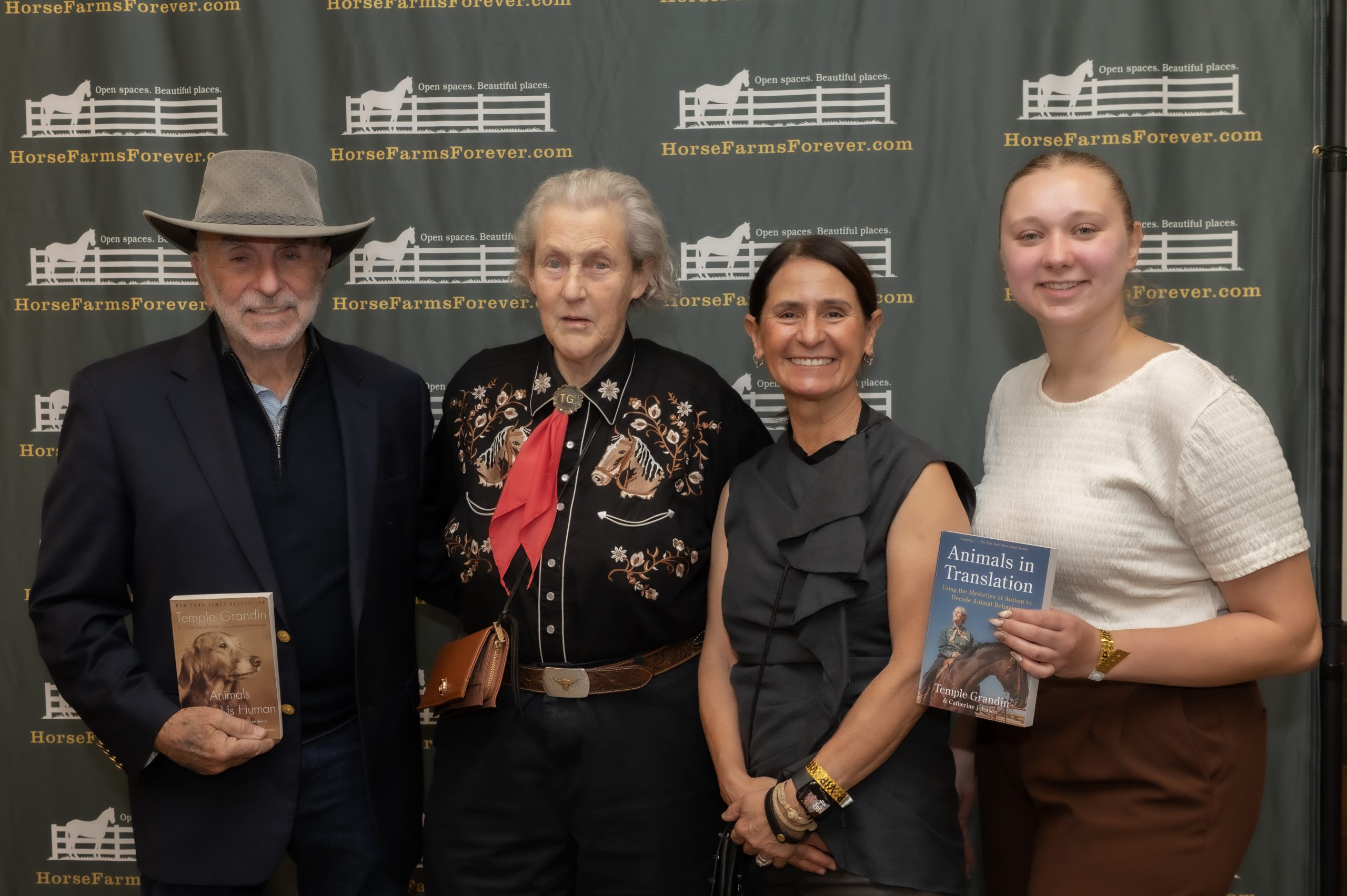
Sub Heading
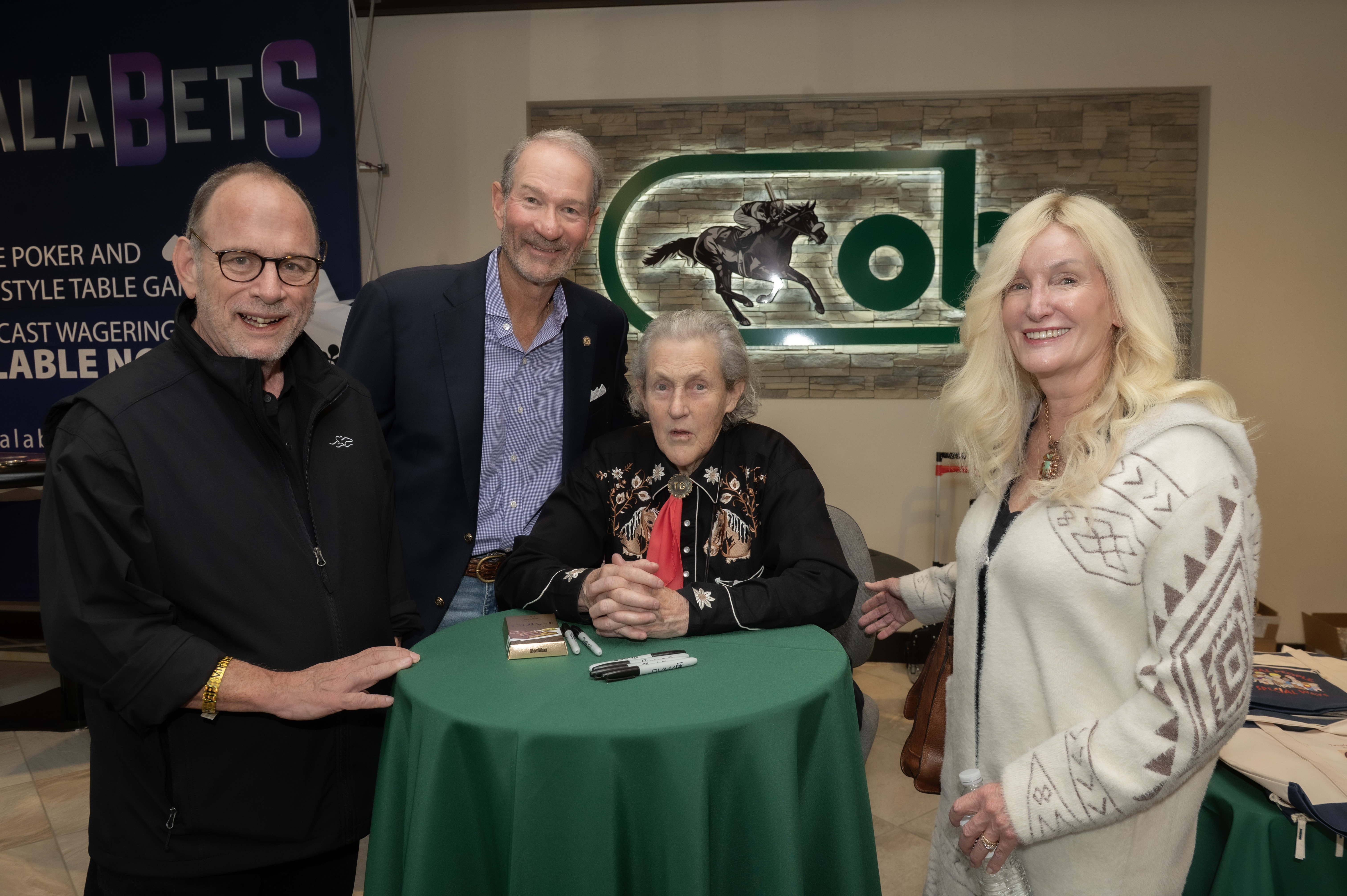
Sub Heading
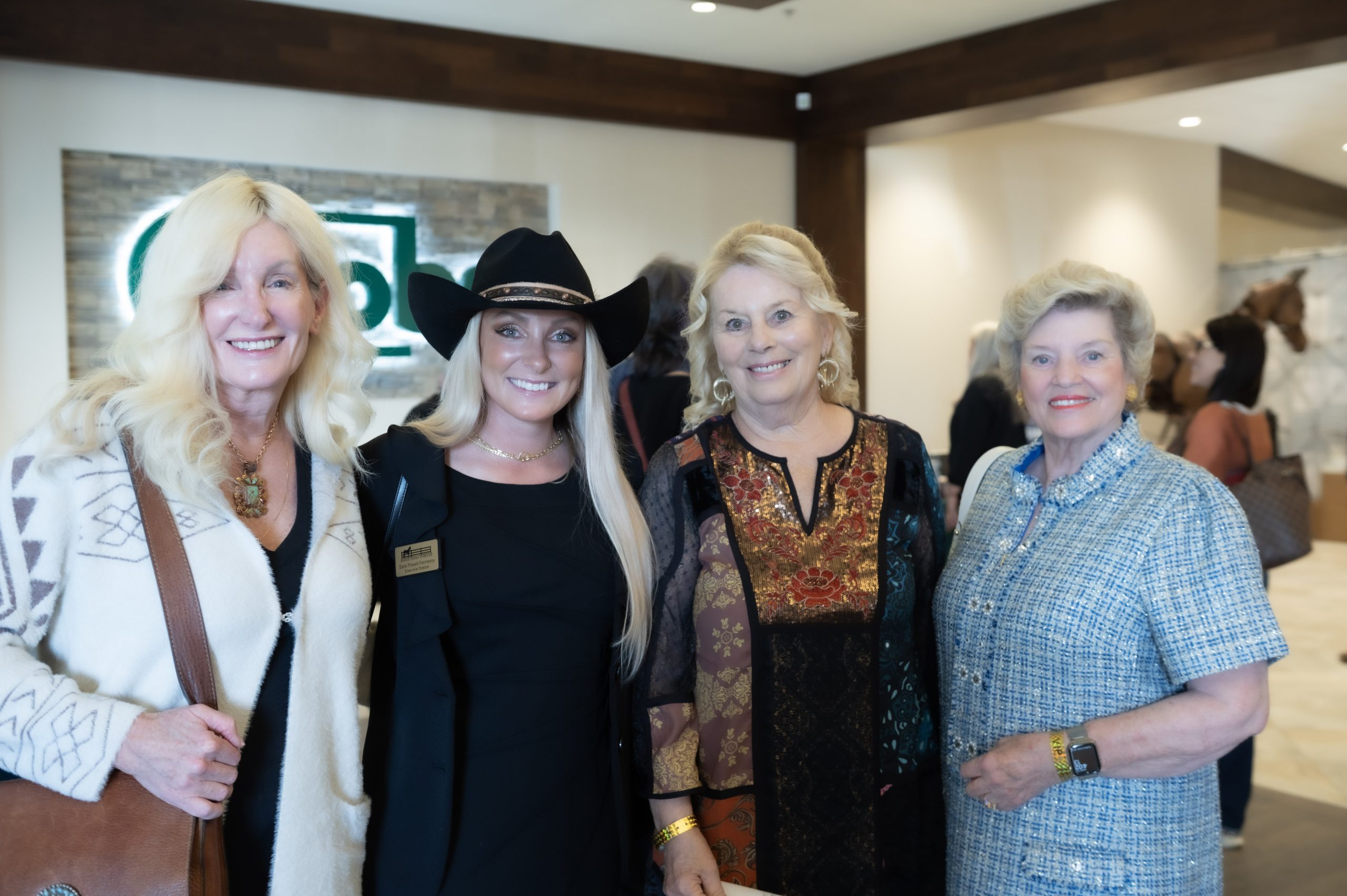
Sub Heading
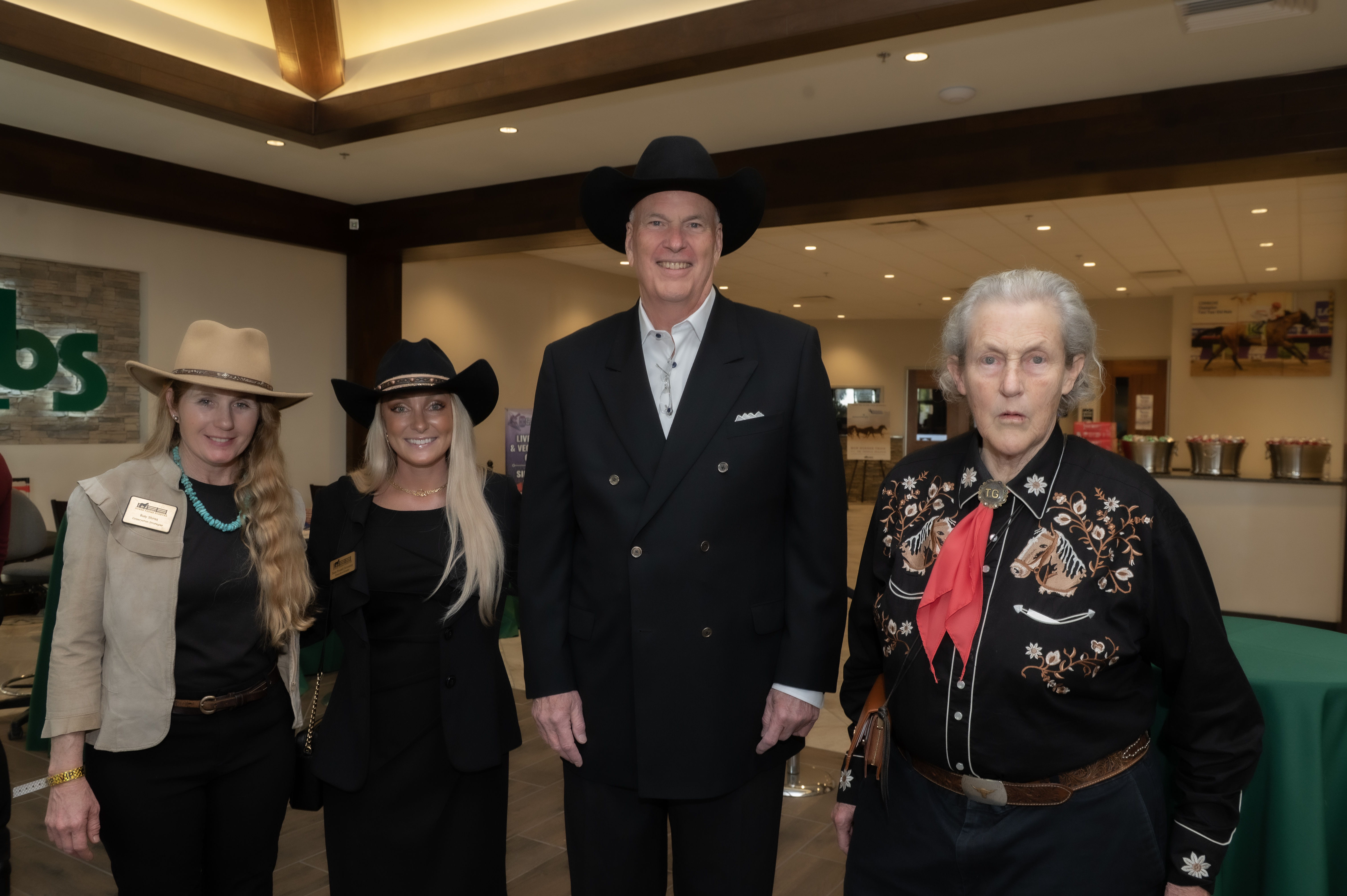
Sub Heading
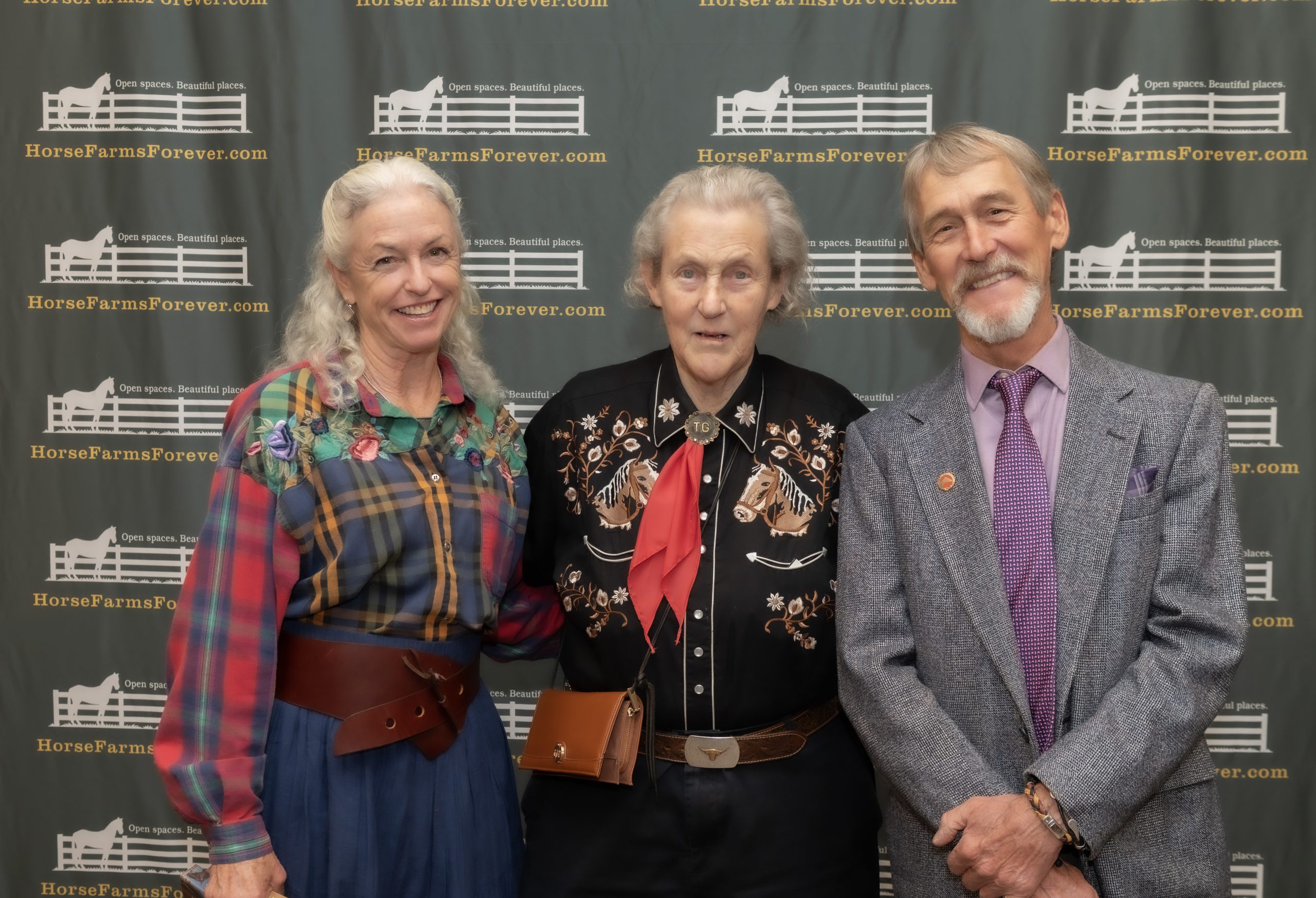
Sub Heading
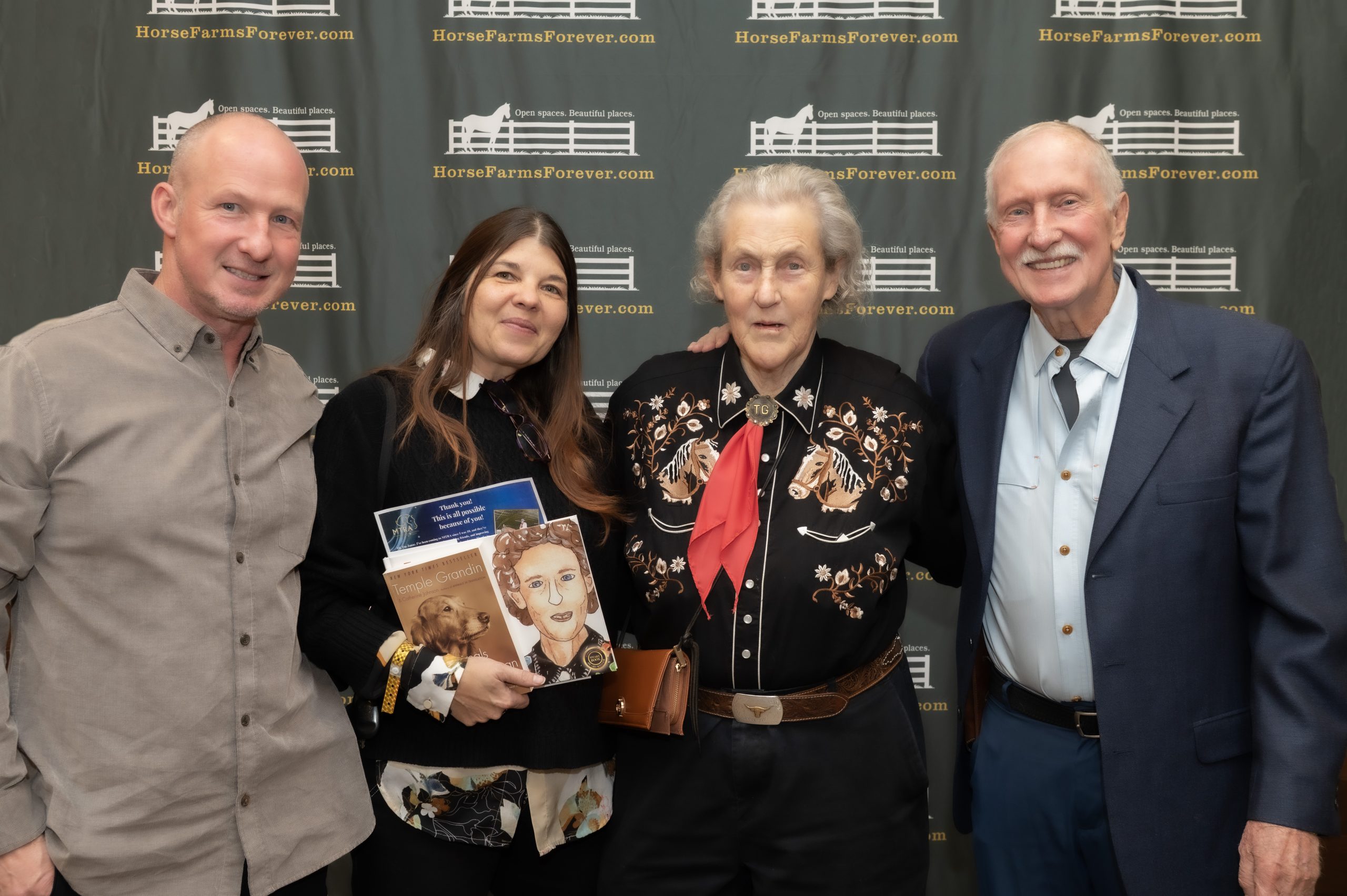
Sub Heading
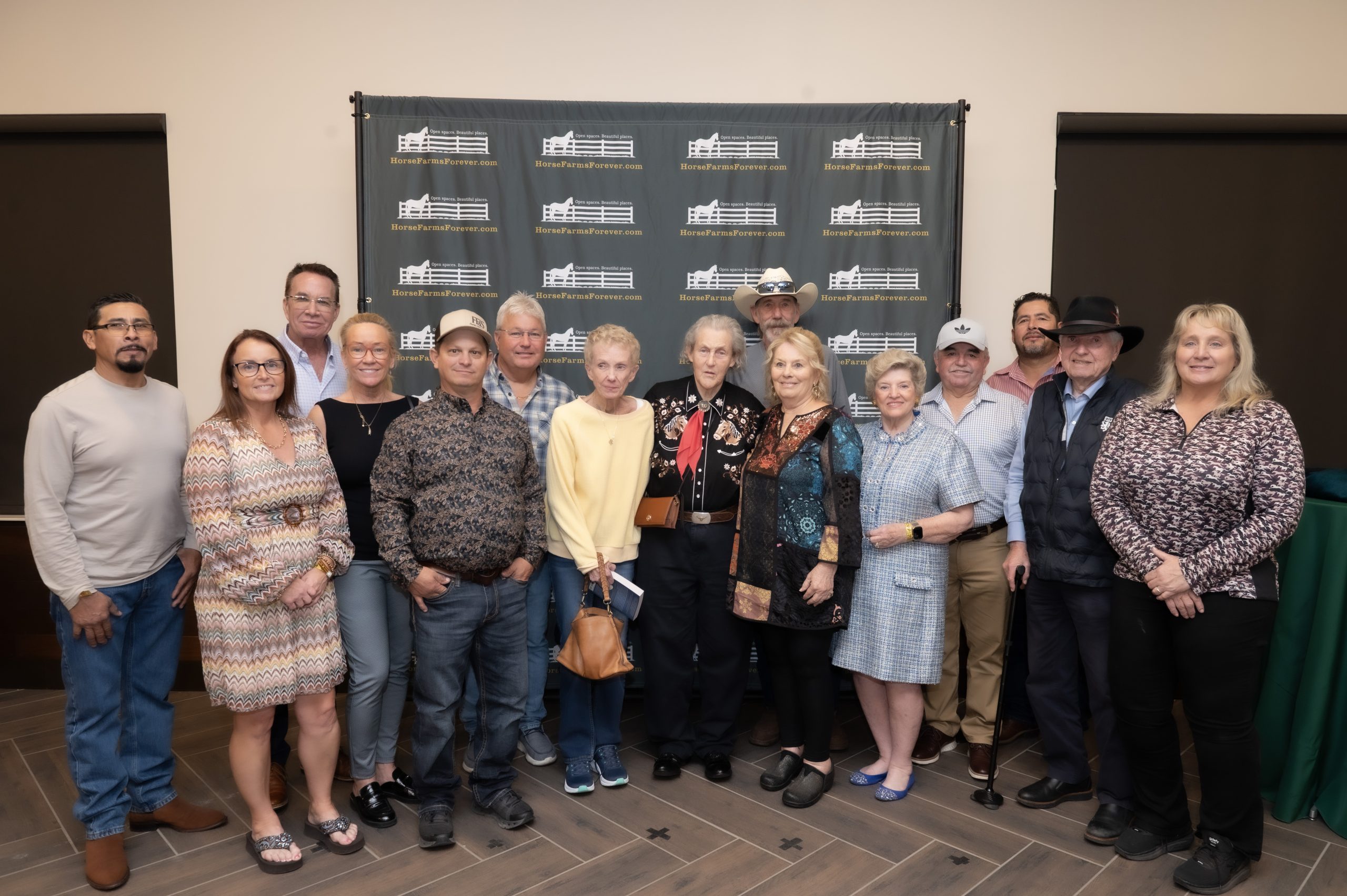
Sub Heading
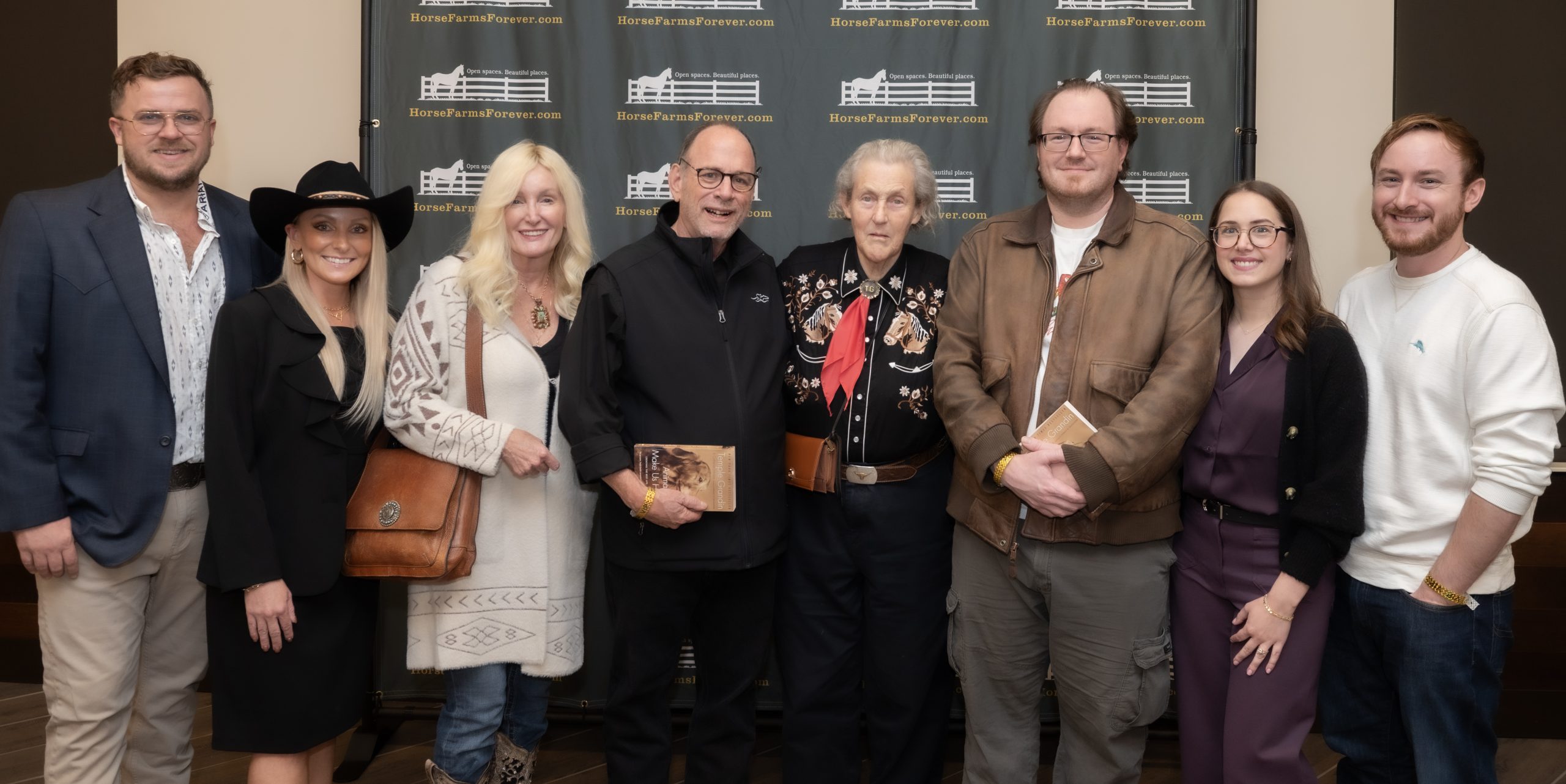
Sub Heading
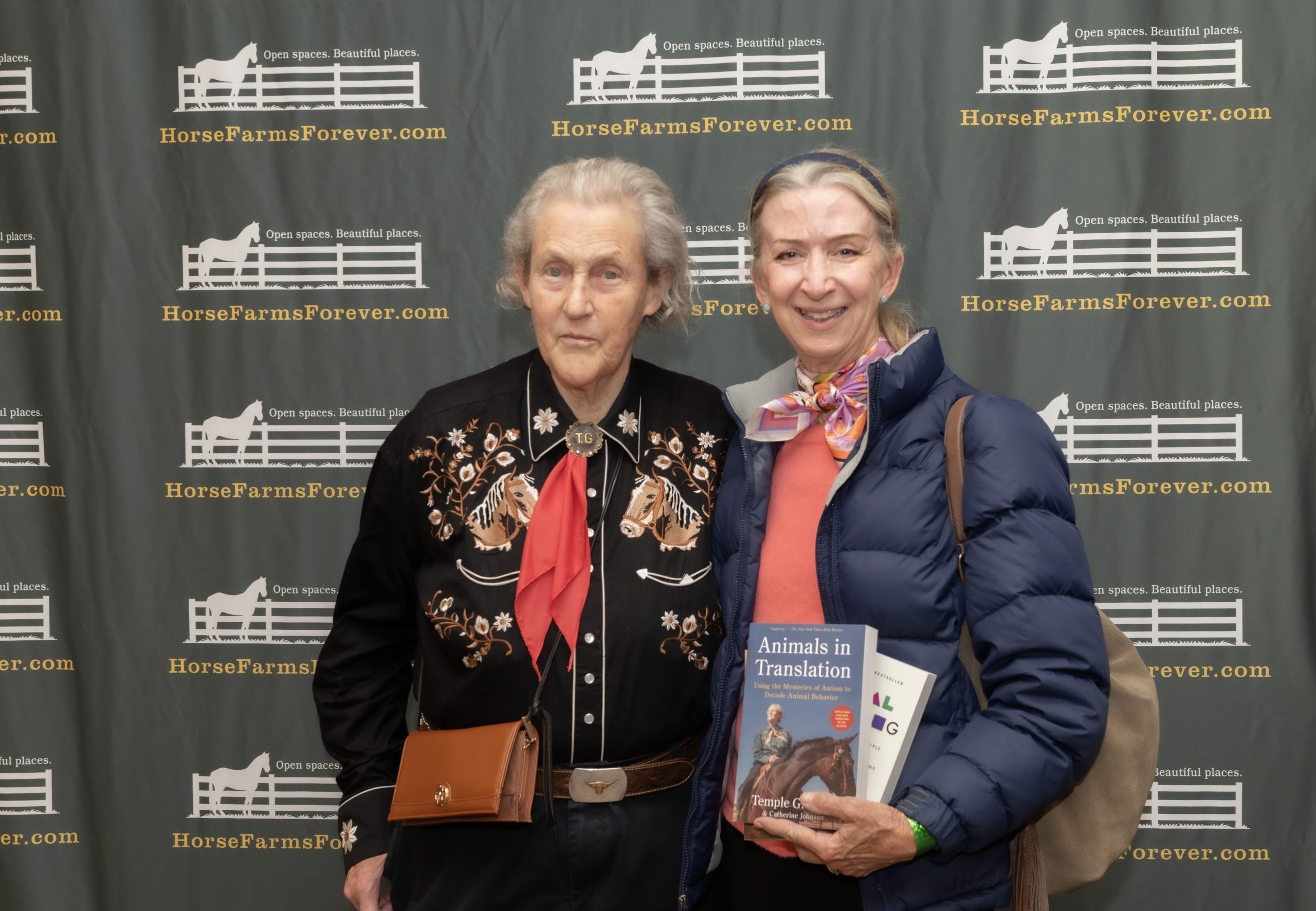
Sub Heading
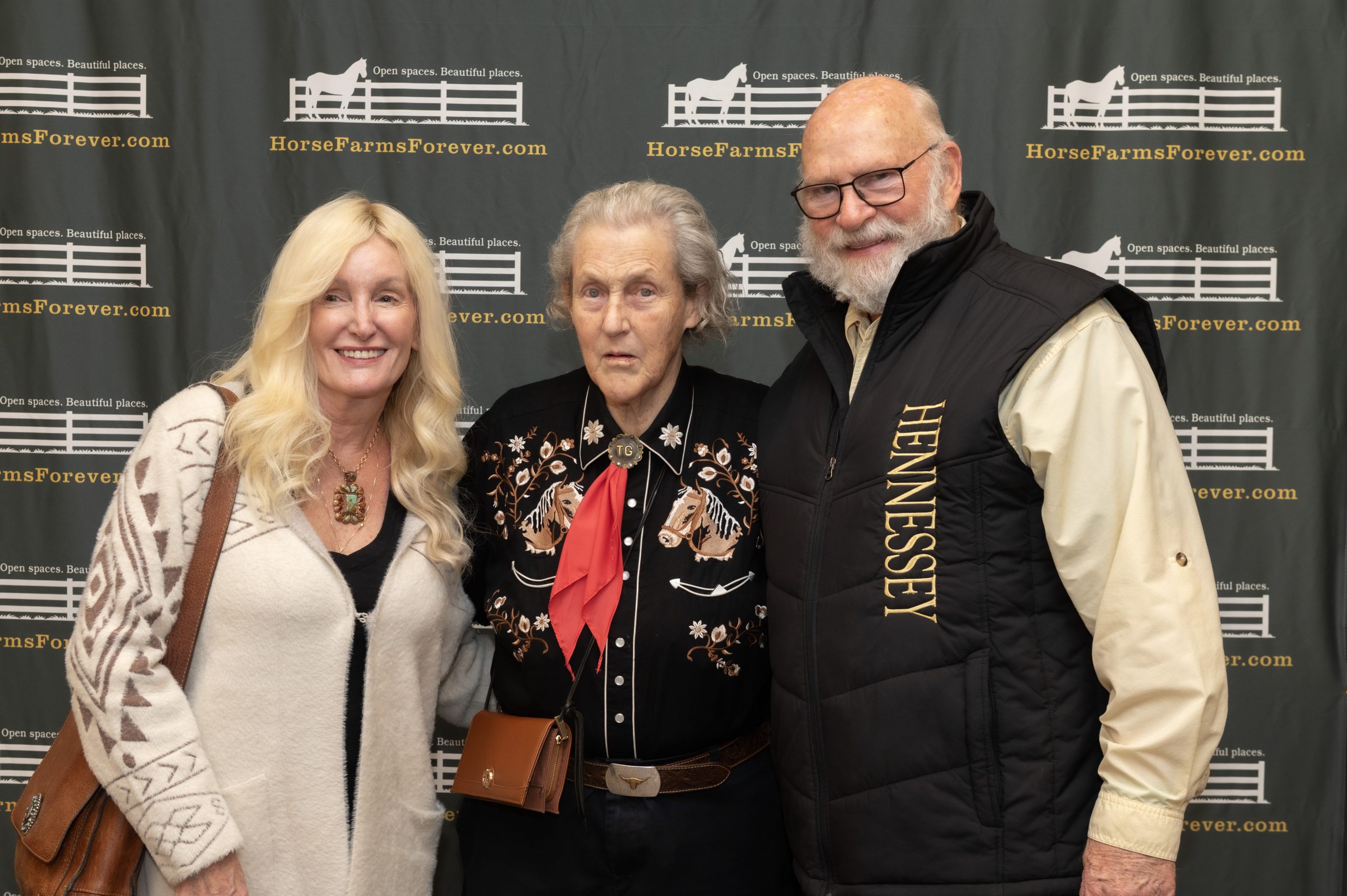
Sub Heading
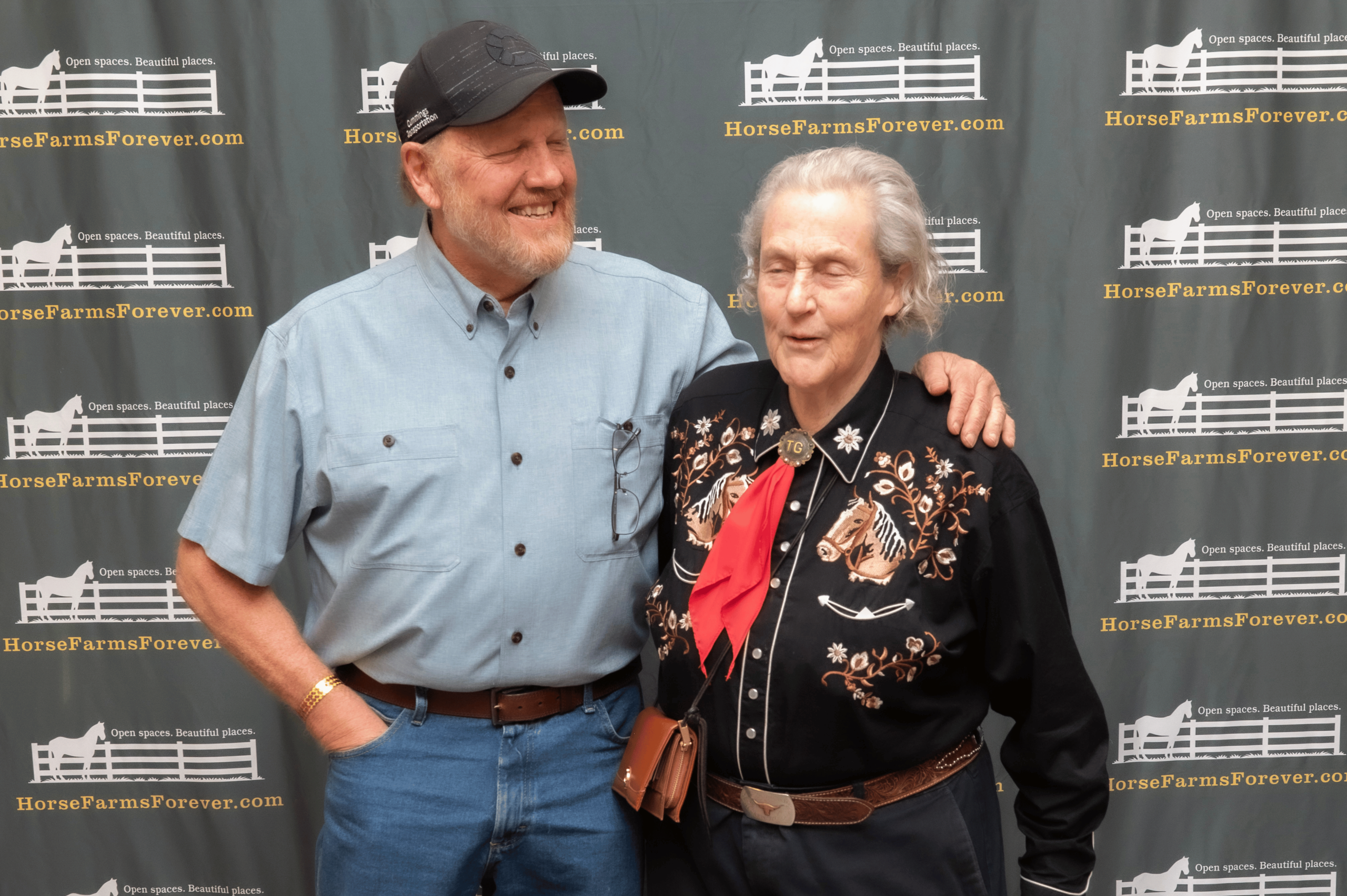
Sub Heading
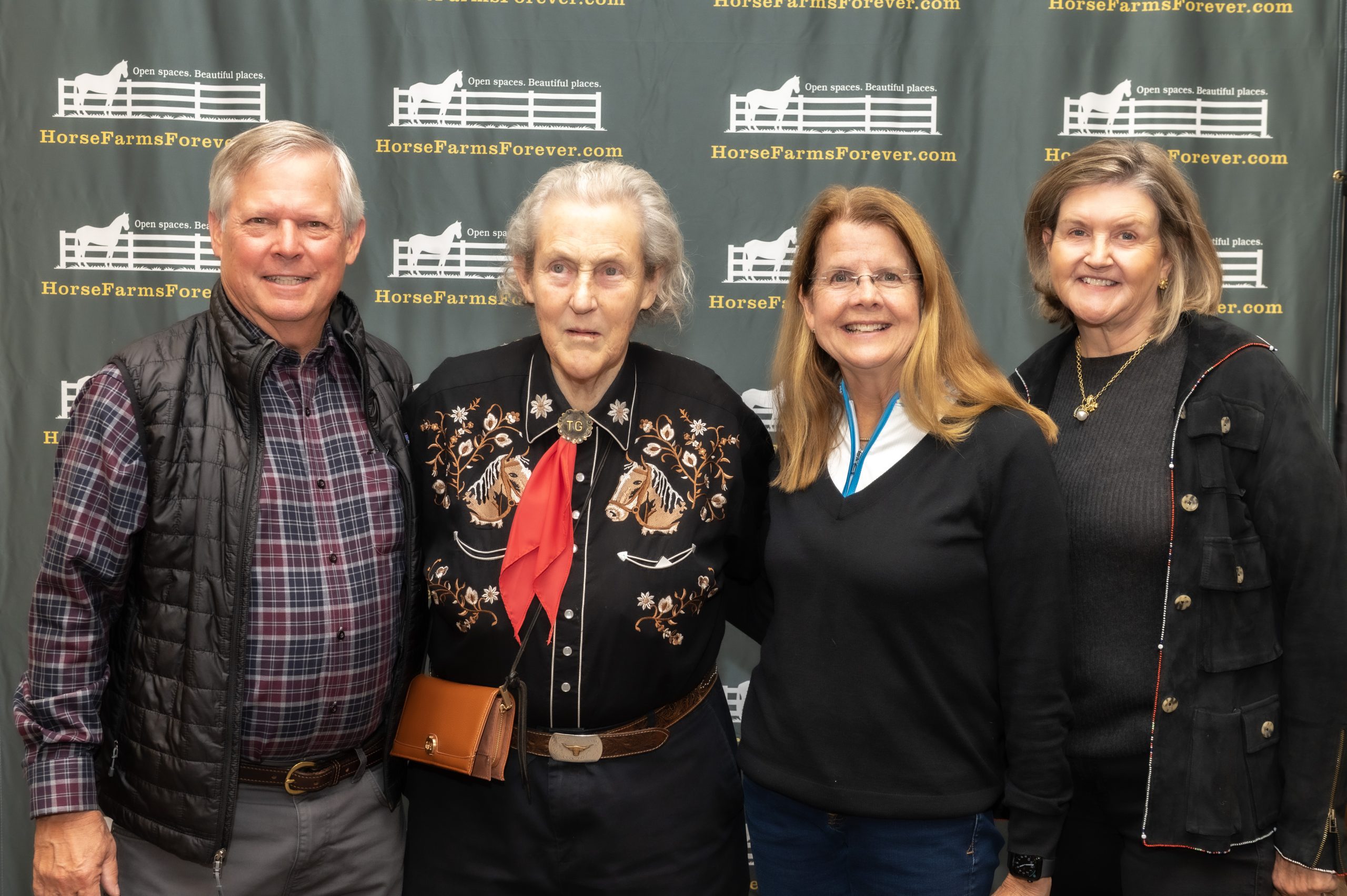
Sub Heading
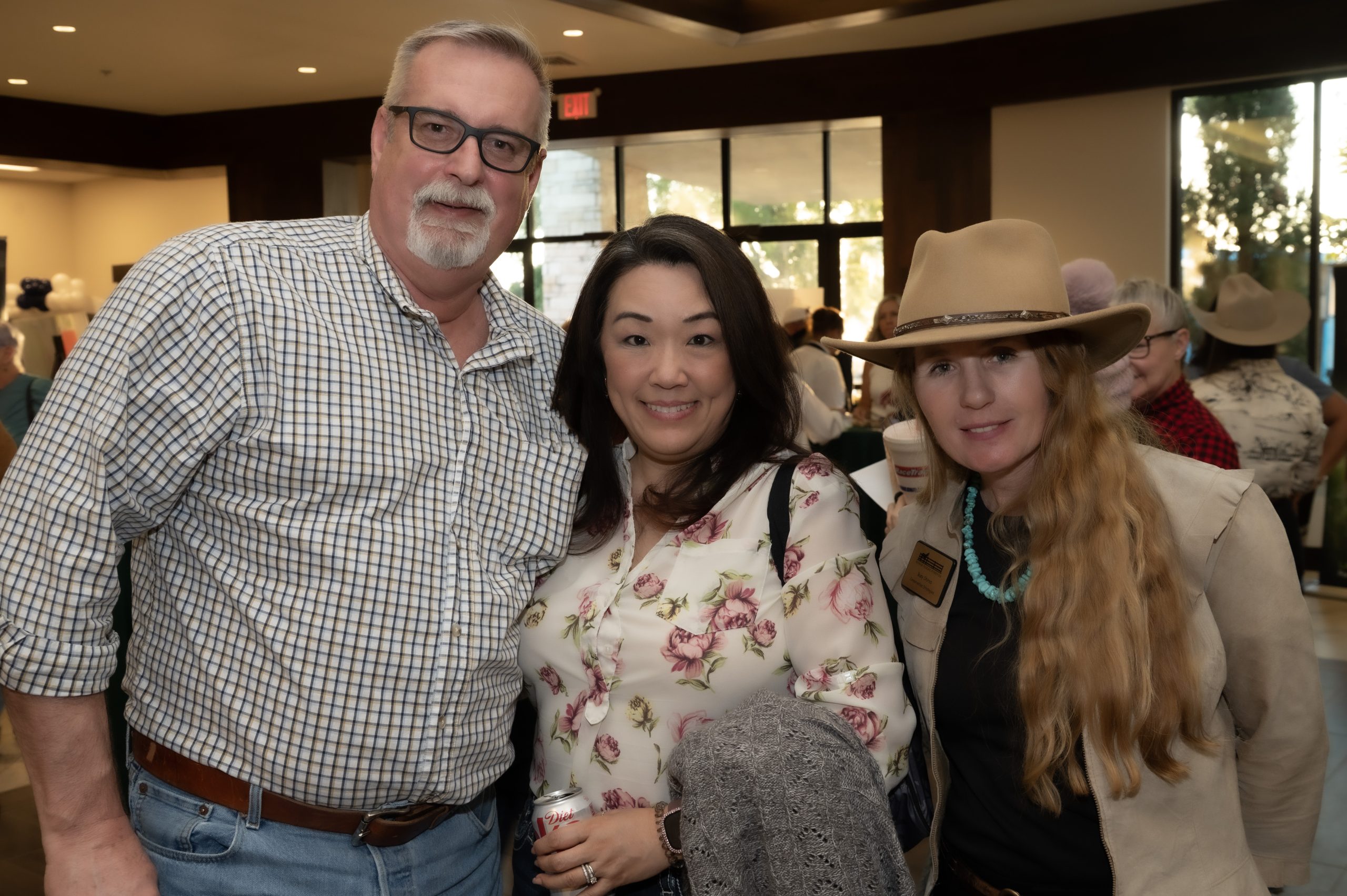
Sub Heading
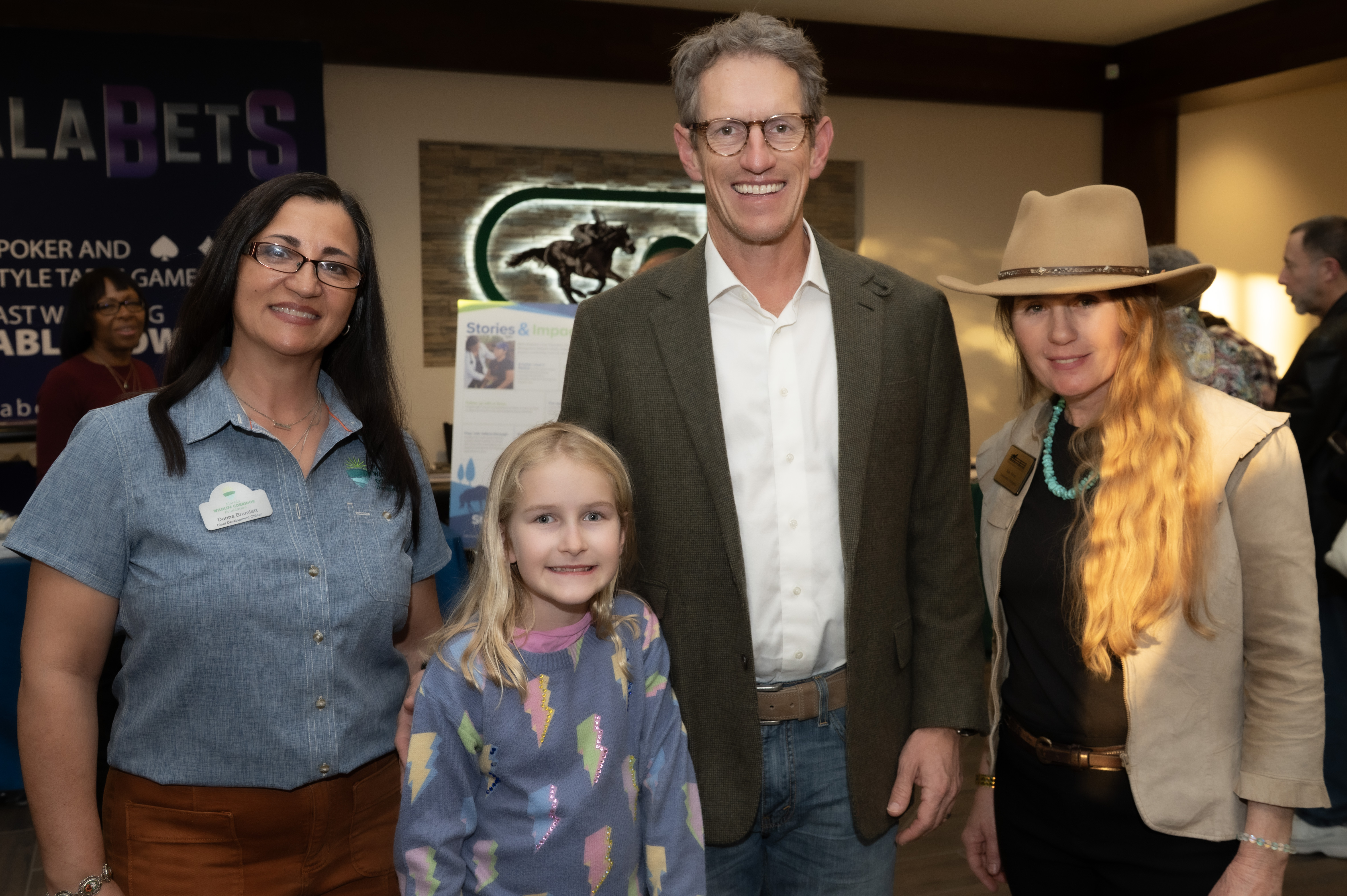
Sub Heading
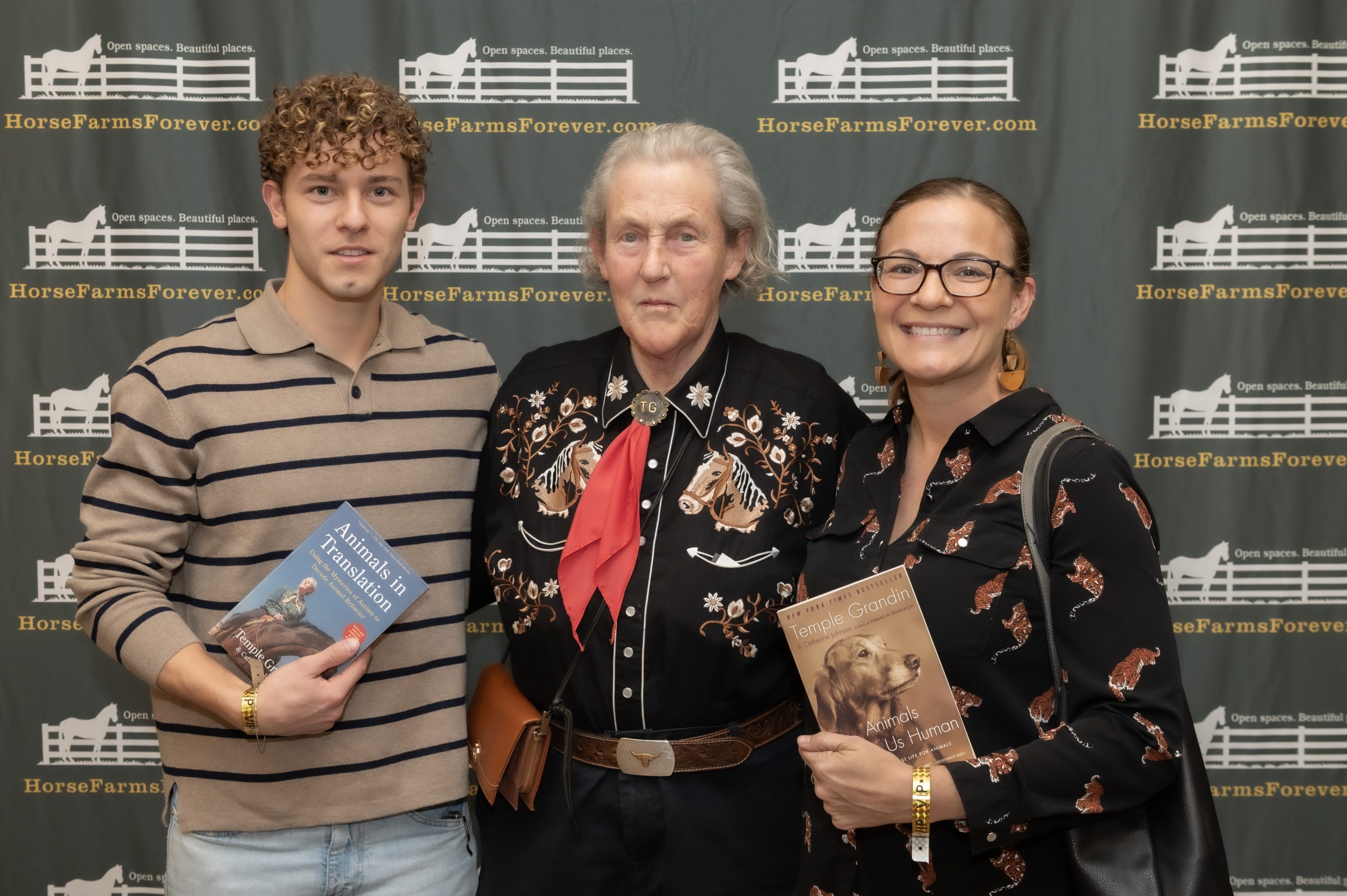
Sub Heading
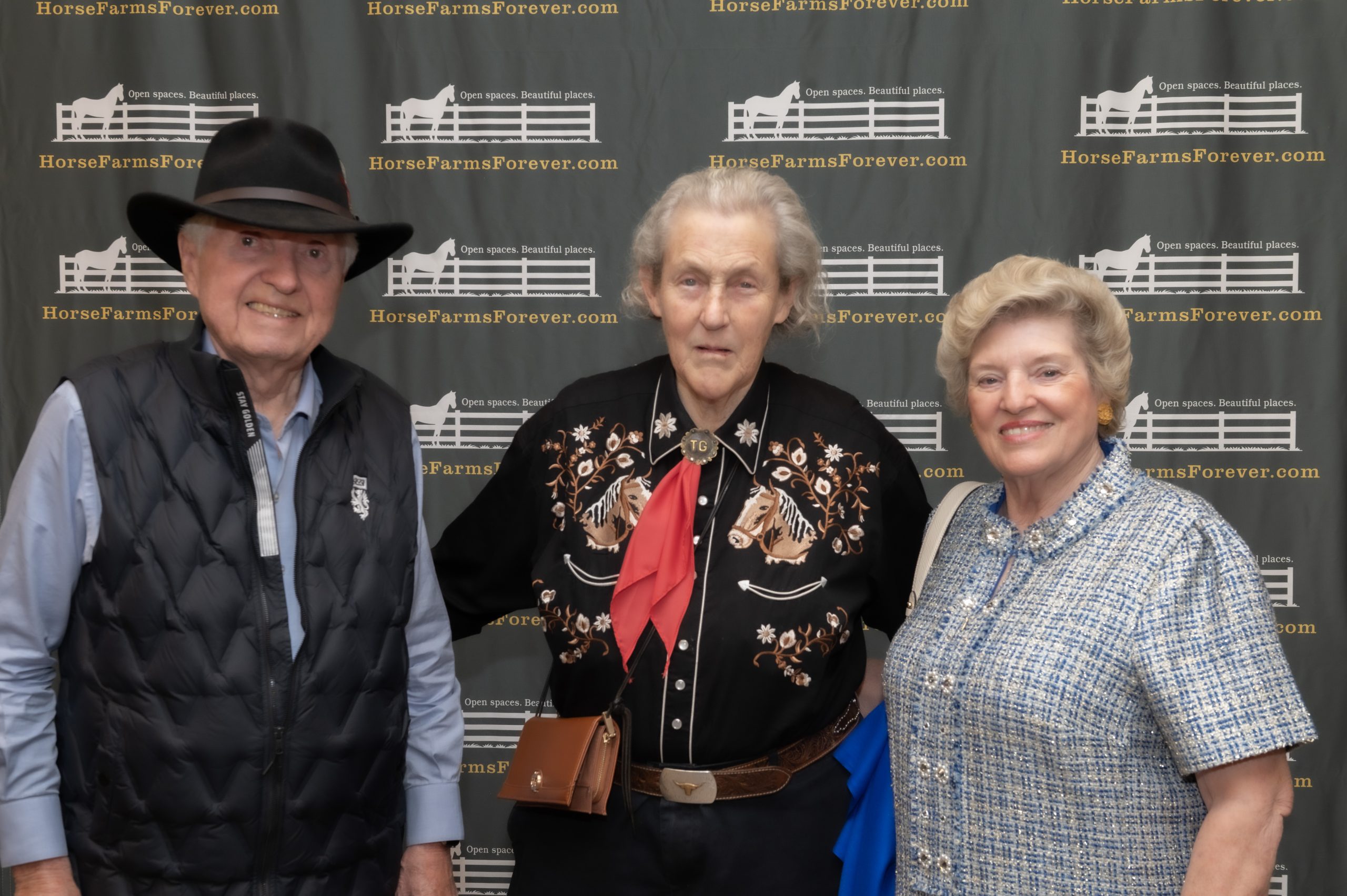
Sub Heading
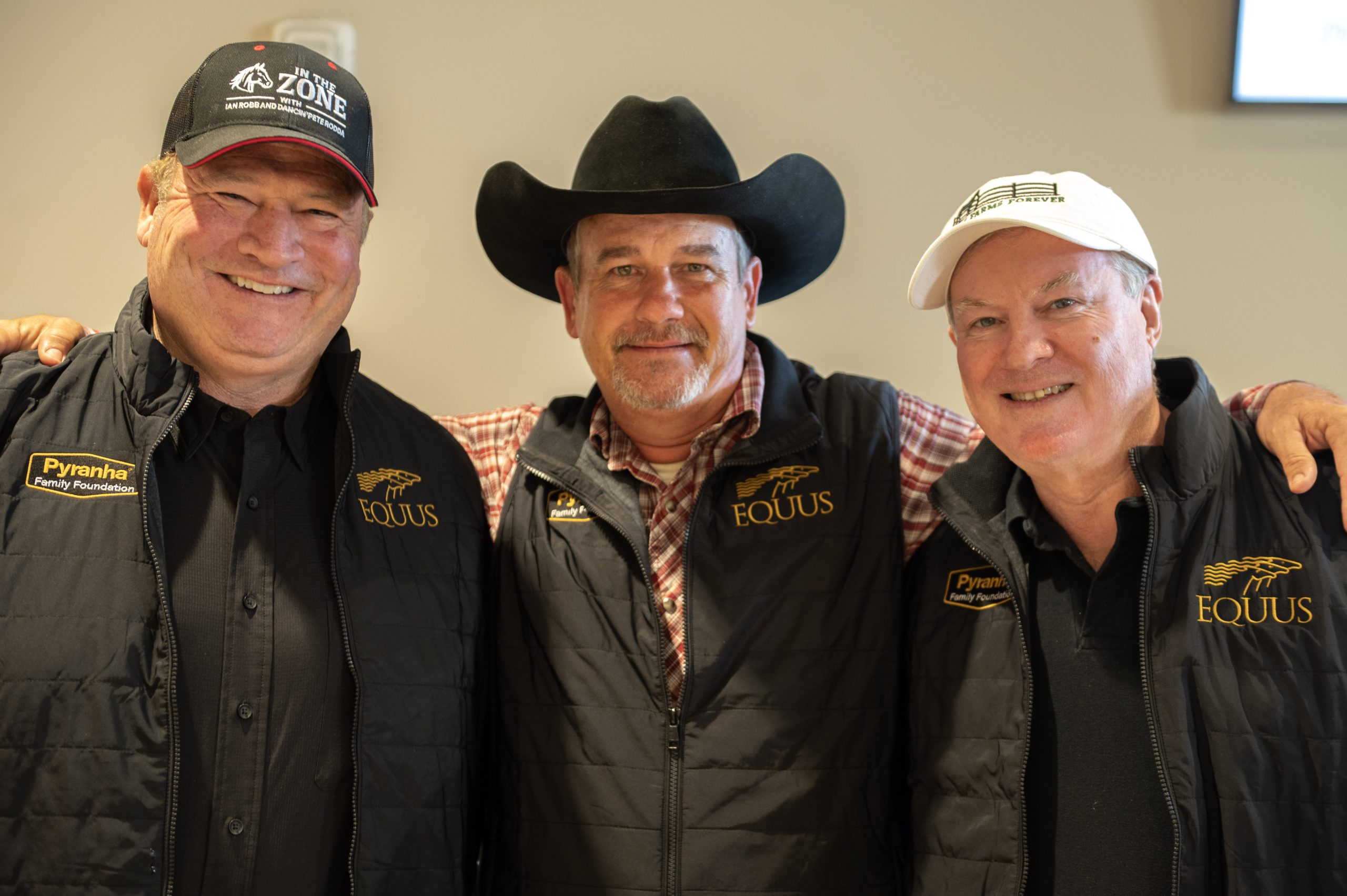
Sub Heading
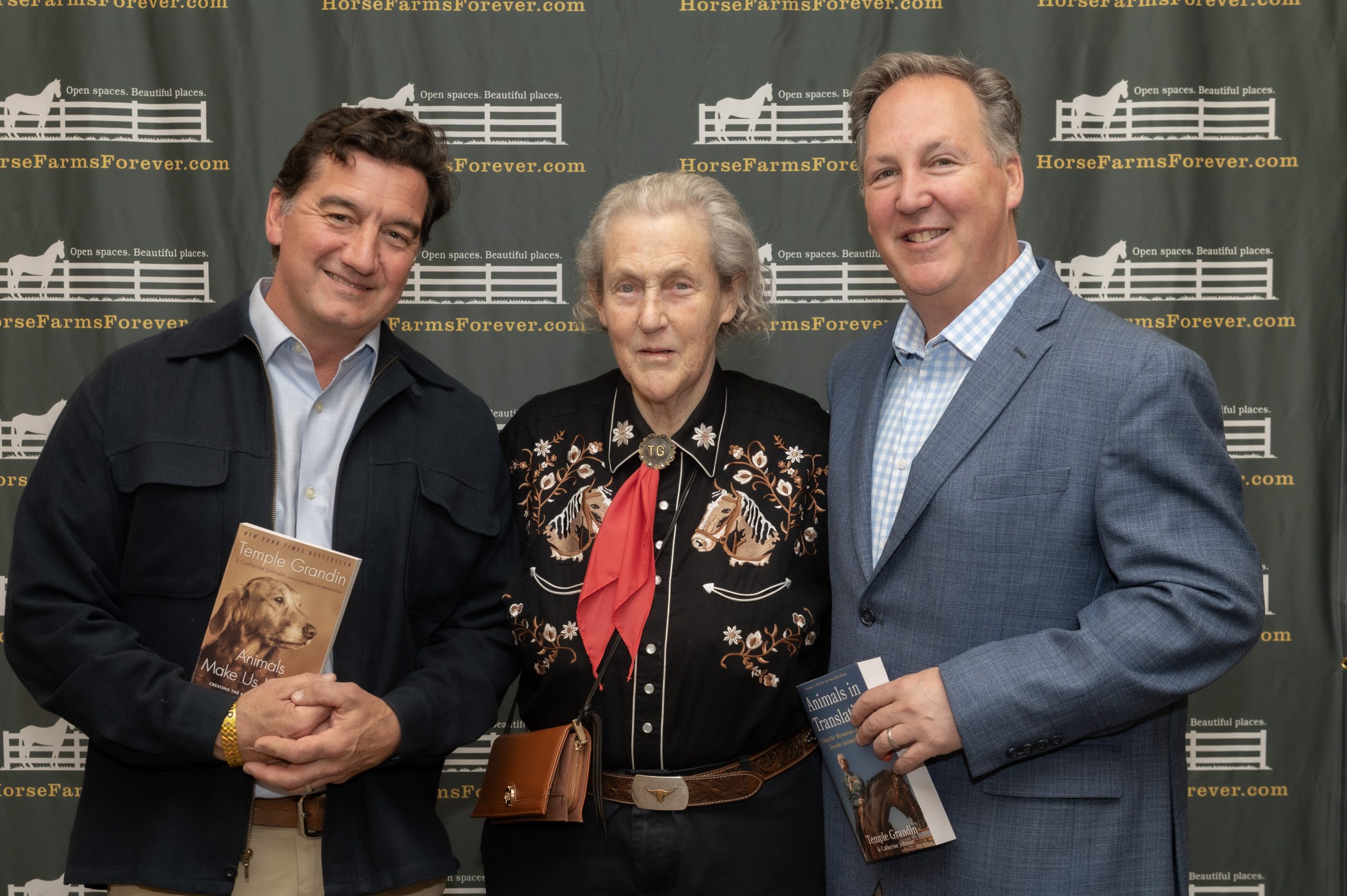
Sub Heading
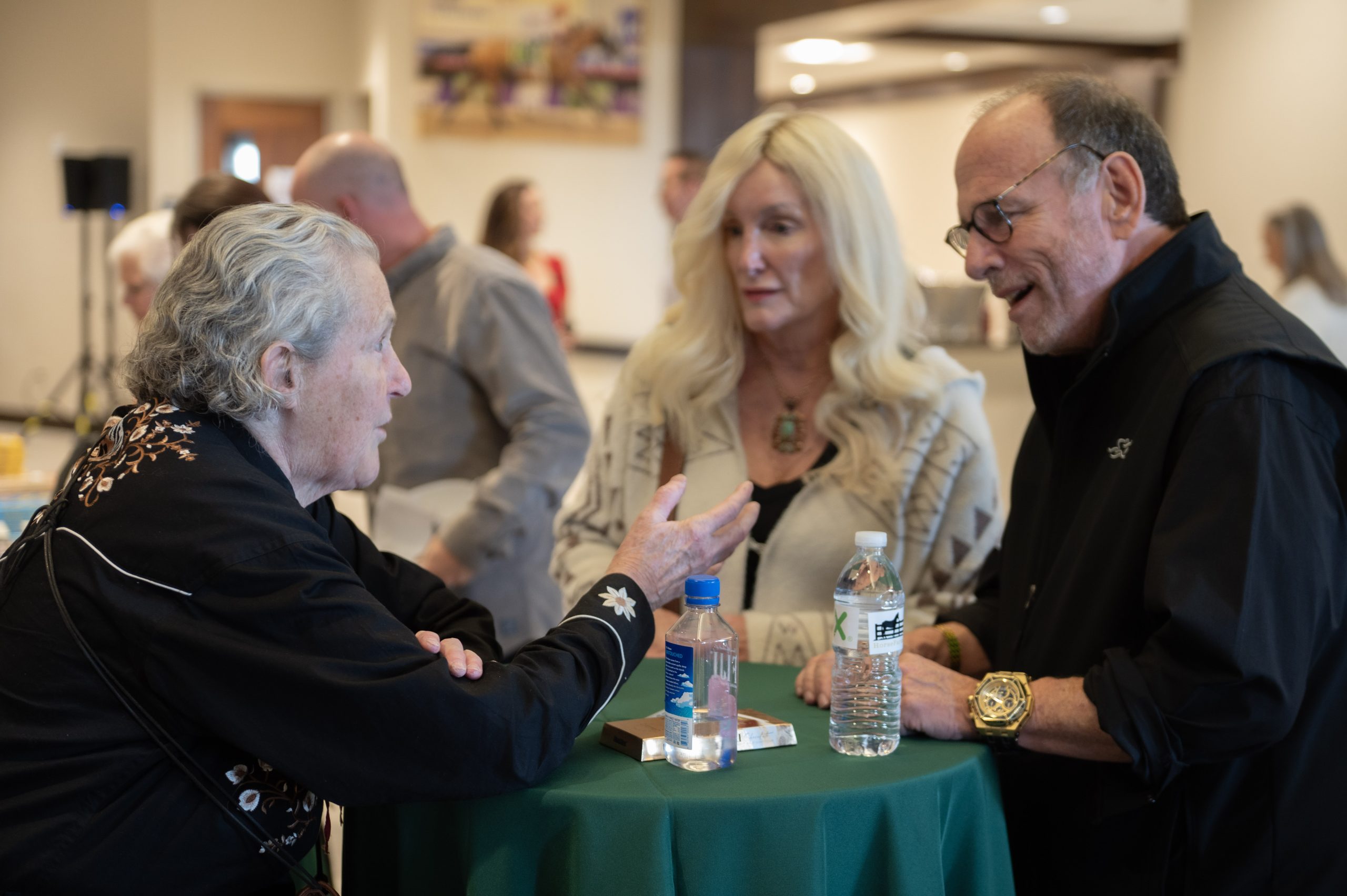
Sub Heading
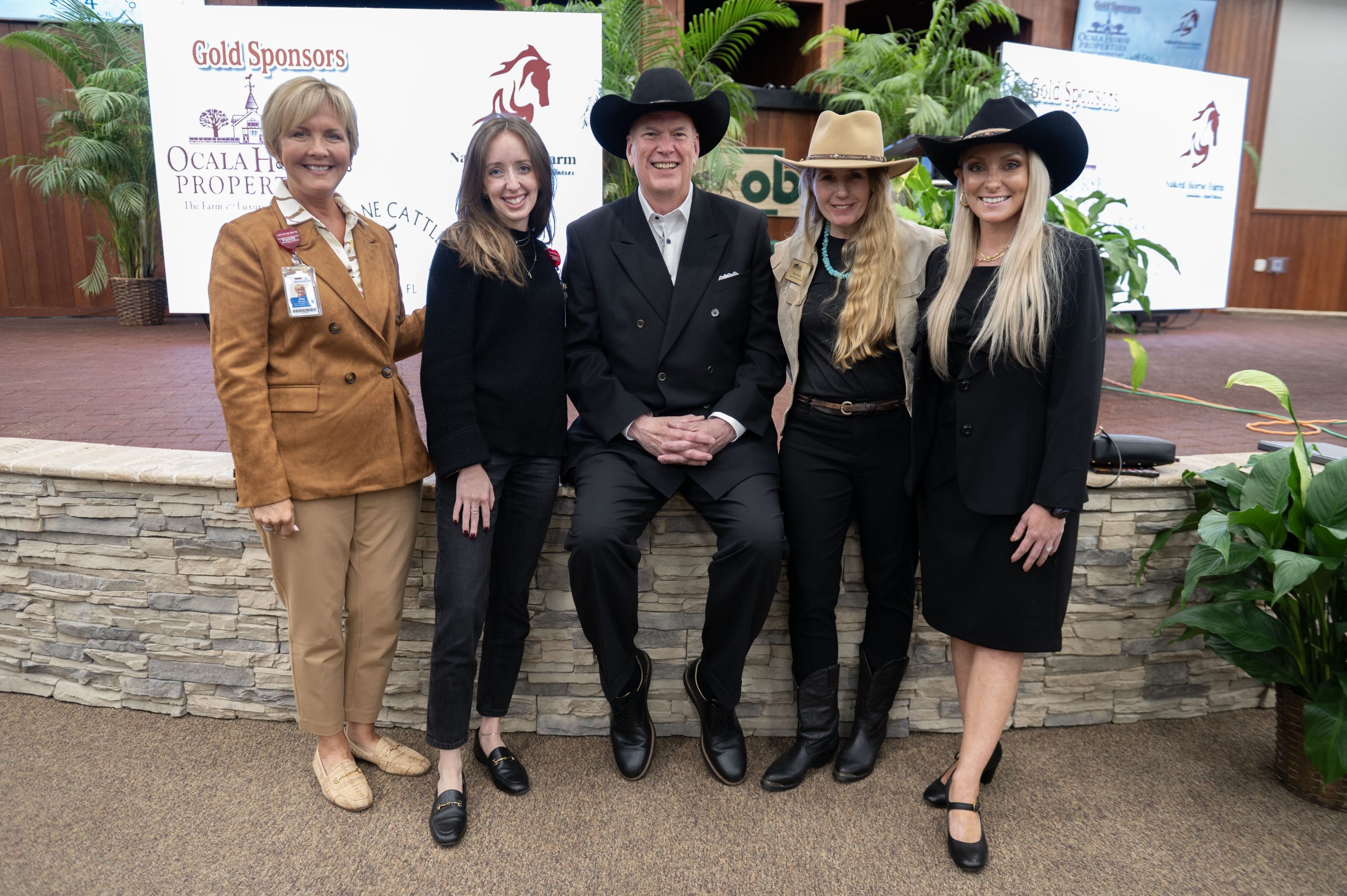
Sub Heading
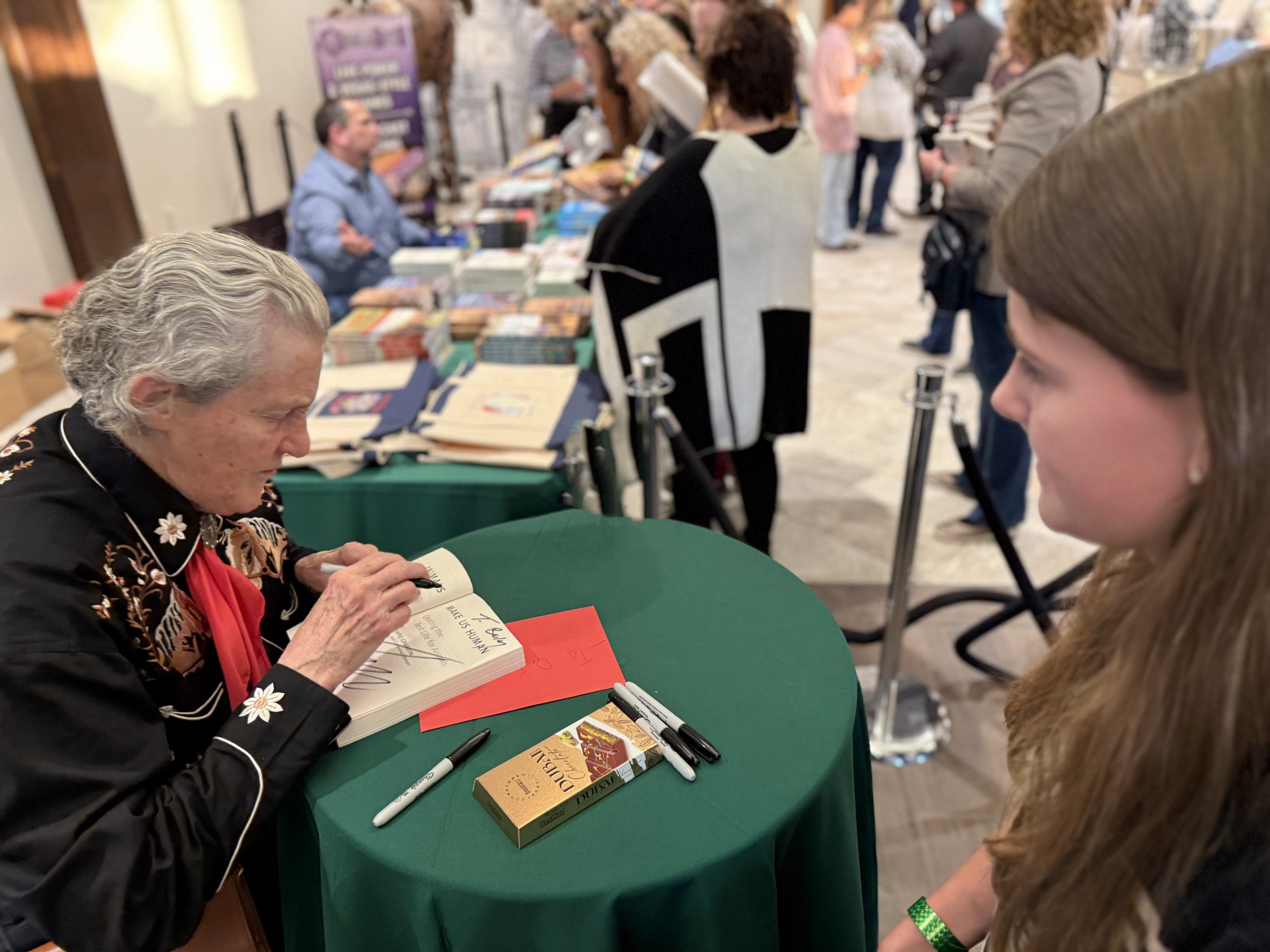
Sub Heading
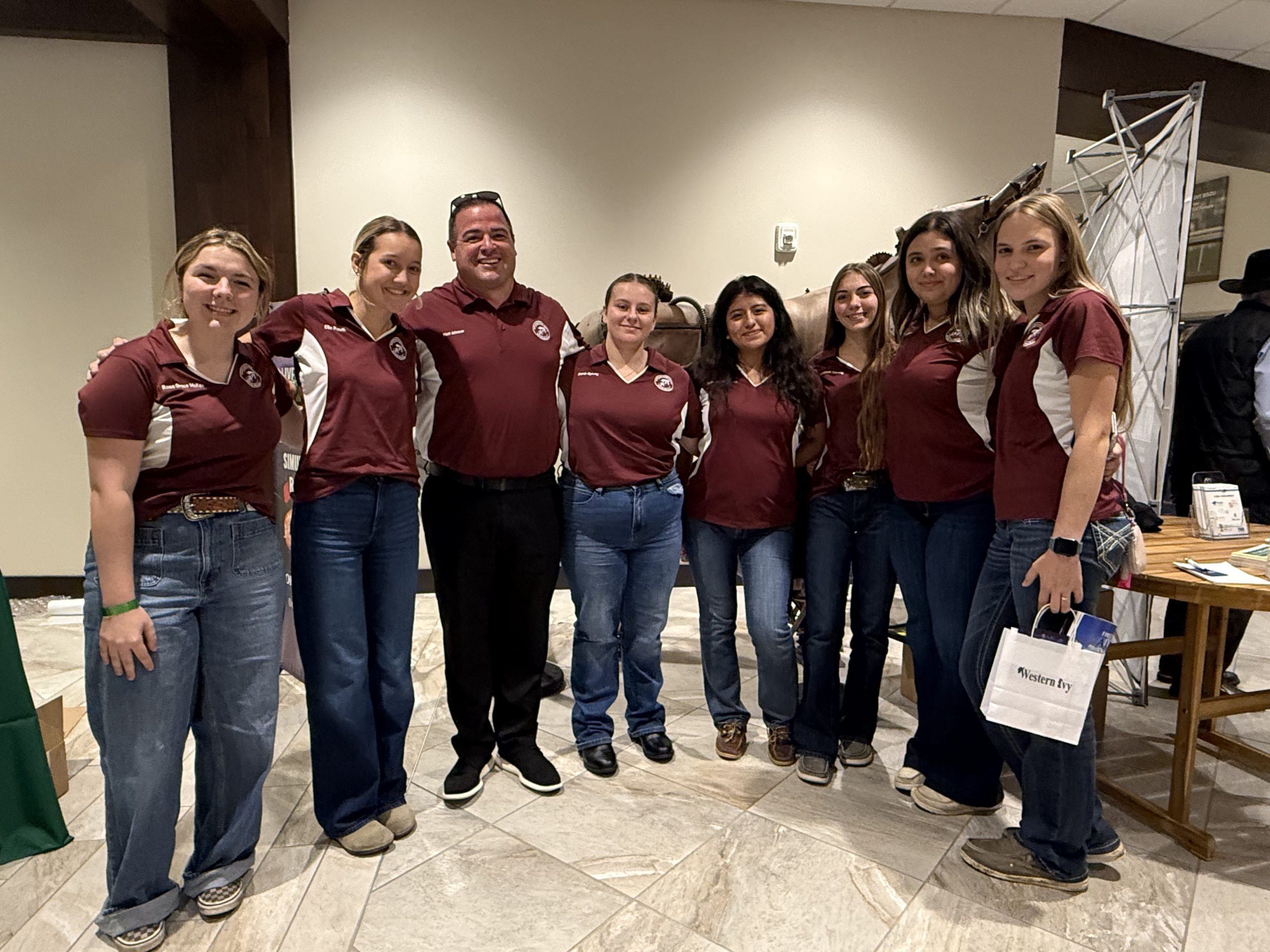
Sub Heading
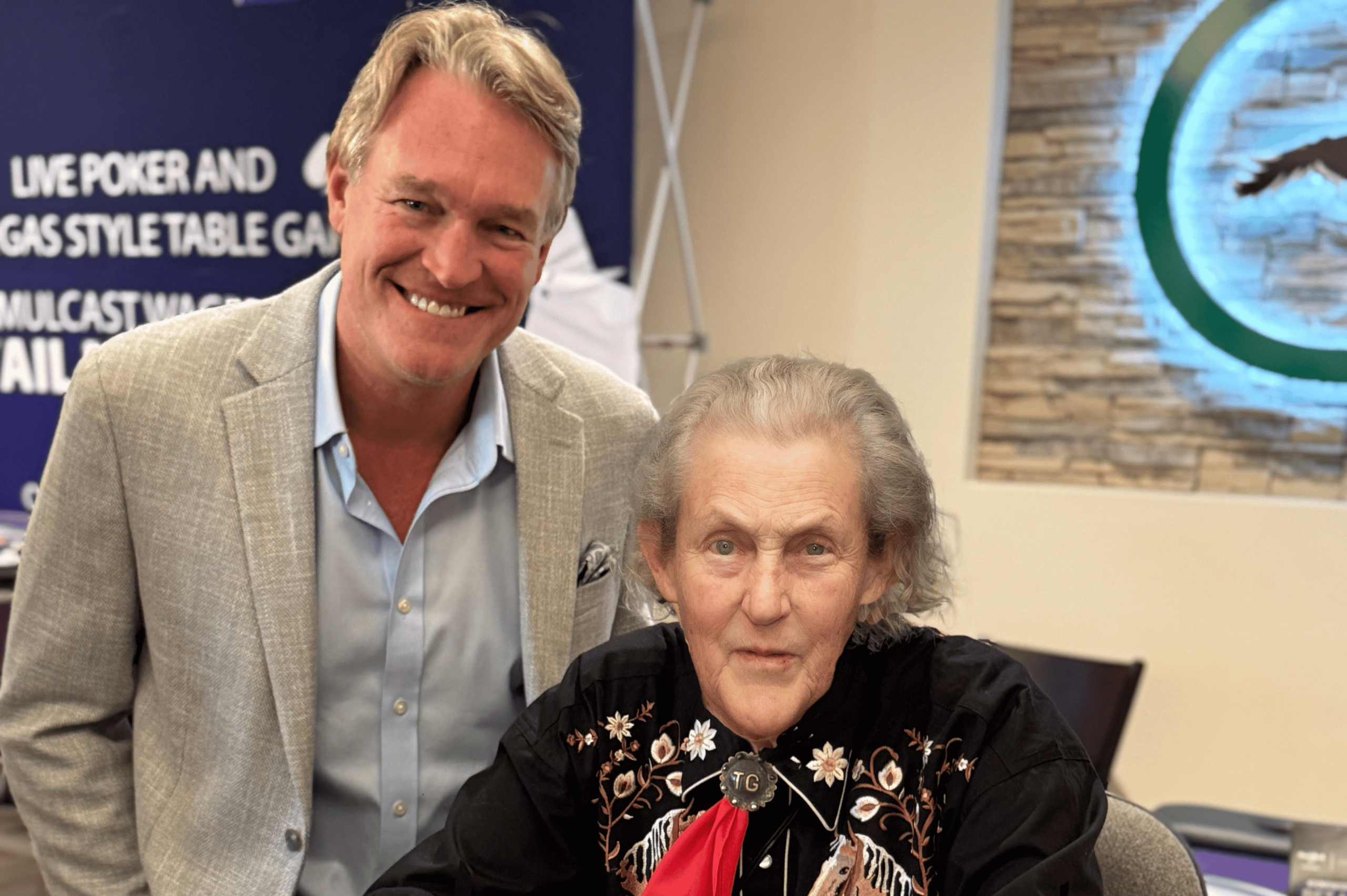
Sub Heading

Sub Heading

Sub Heading

Sub Heading

Sub Heading

Sub Heading

Sub Heading

Sub Heading

Sub Heading

Sub Heading

Sub Heading

Sub Heading

Sub Heading

Sub Heading

Sub Heading

Sub Heading

Sub Heading

Sub Heading

Sub Heading

Sub Heading

Sub Heading

Sub Heading

Sub Heading

Sub Heading

Sub Heading

Sub Heading

Sub Heading

Sub Heading

Sub Heading
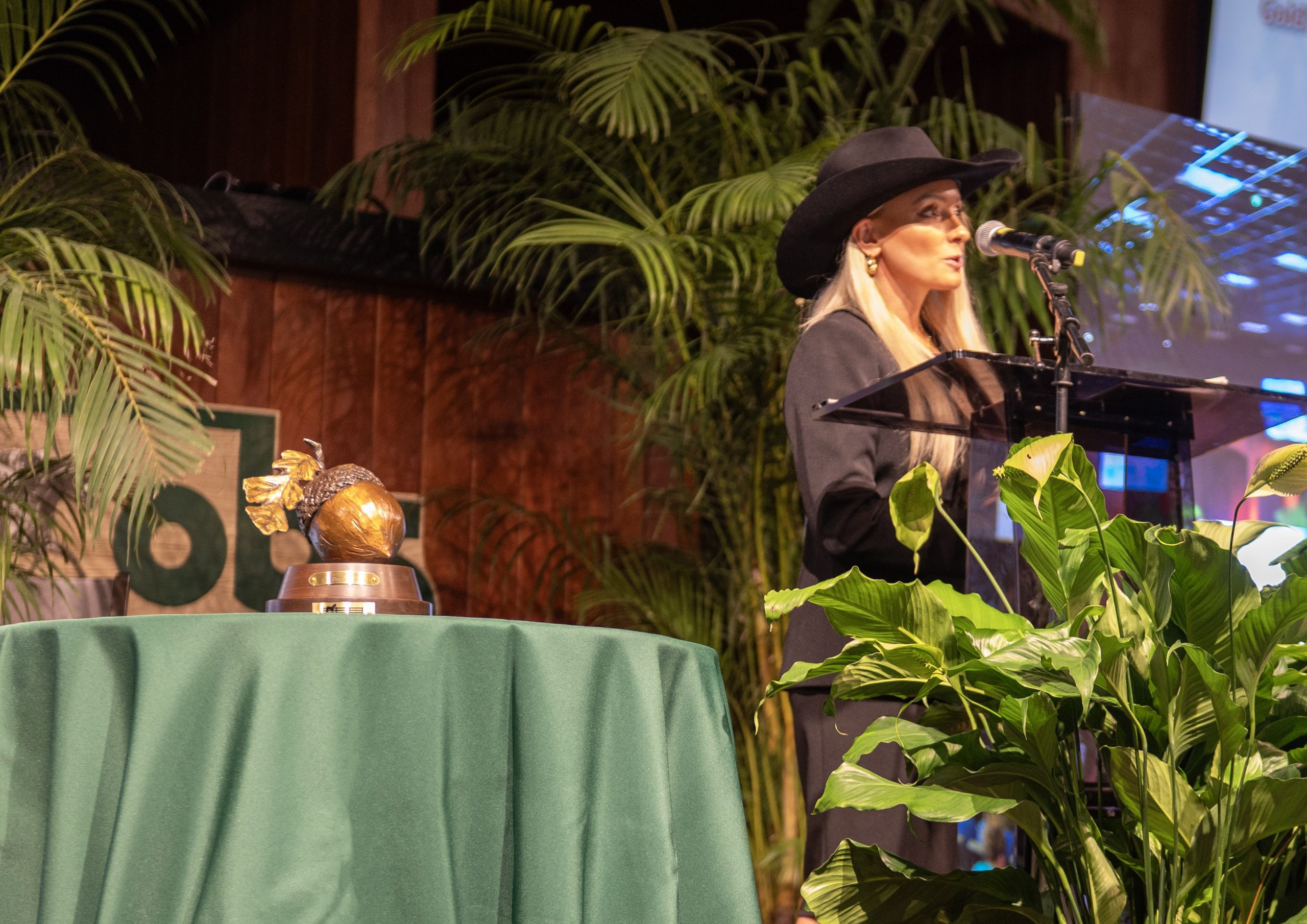
Sara Fennessy, HFF Executive Director speaking at the 2025 Conservation Summit.
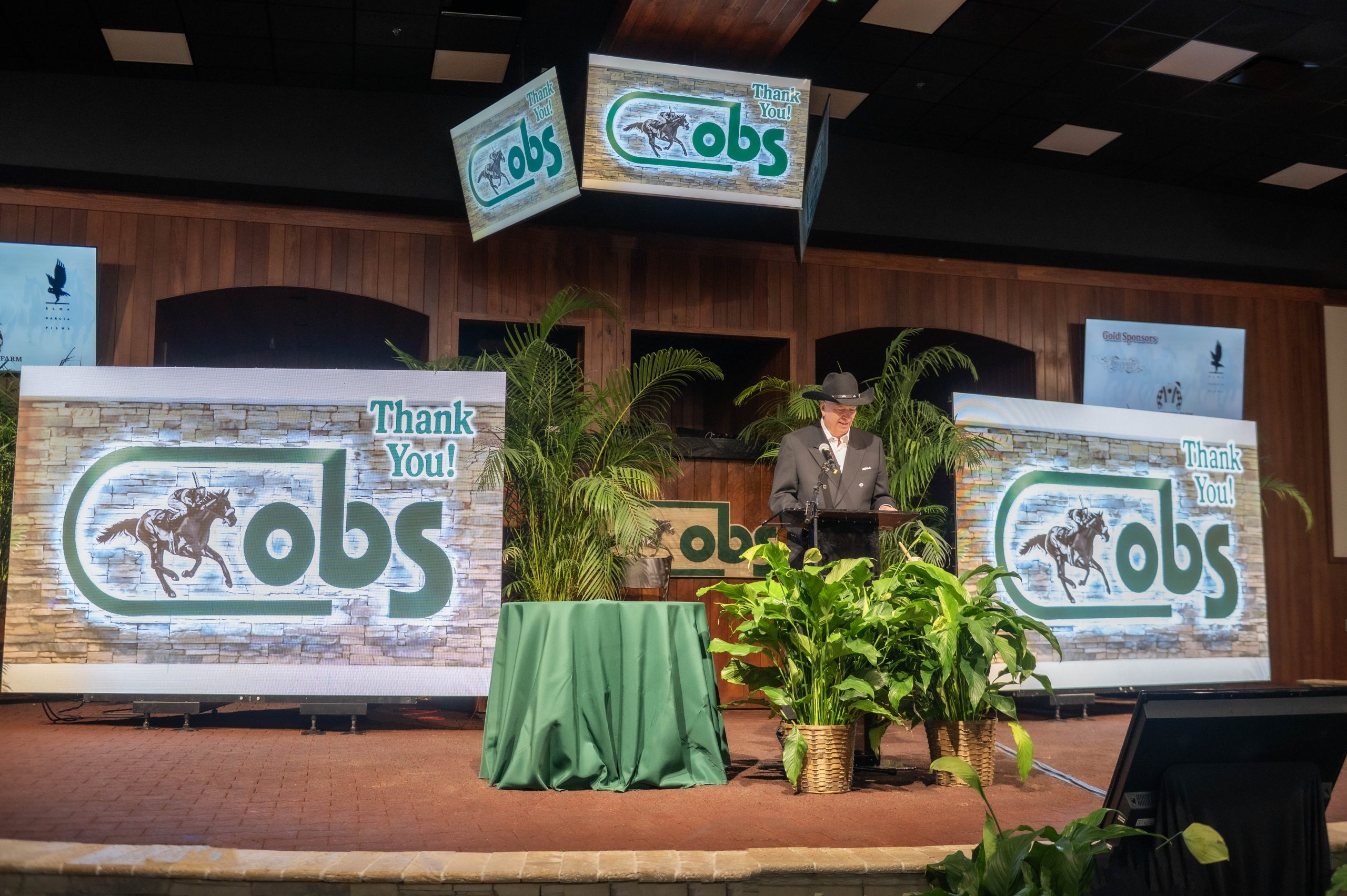
Bernie Little, HFF President thanks Ocala Breeders’ Sales for donating the OBS Arena for the fourth year in a row! Thank you for your generous support!
Acorn Conservation Award
Every year at the Conservation Summit Horse Farms Forever presents the Acorn Conservation Award to an individual that has made a significant contribution to the preservation of land or horse farms in Marion County. This year, we are honored to present the award to the Drake Family, one of the pioneering families in Marion County.
In 2002, Trusten (Trusty) Polk Drake, III & George MacKay (K) Drake, Sr. preserved 5,800 acres of the ranch by placing it in a conservation easement with the Southwest Florida Water Management District. The Drake Ranch is a historic ranch that has been passed down through four generations of the Drake family. The Drakes are one of the first pioneering families to settle in Florida in the 1870s.
The fourth generation of the Drake family now owns and manages the historic Drake Ranch as a partnership. Protecting the legacy of the Drake Ranch was a decision made by the Drake brothers, and it has been whole heartedly embraced by the large extended Drake family, who take great pride in knowing that their family’s ranch will forever be protected.
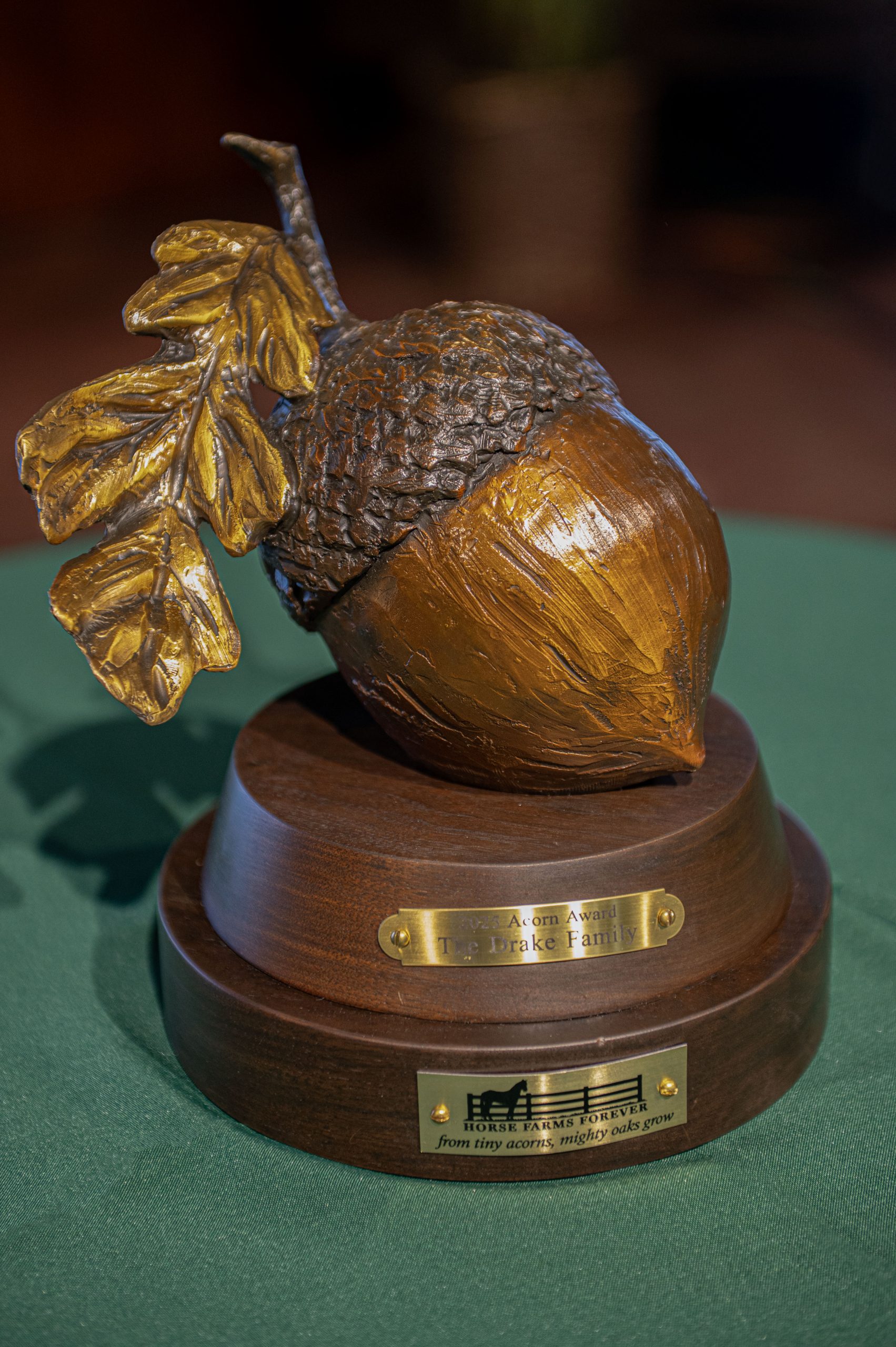
The Acorn Conservation Award is a bronze sculpture by Bryce Pettit.
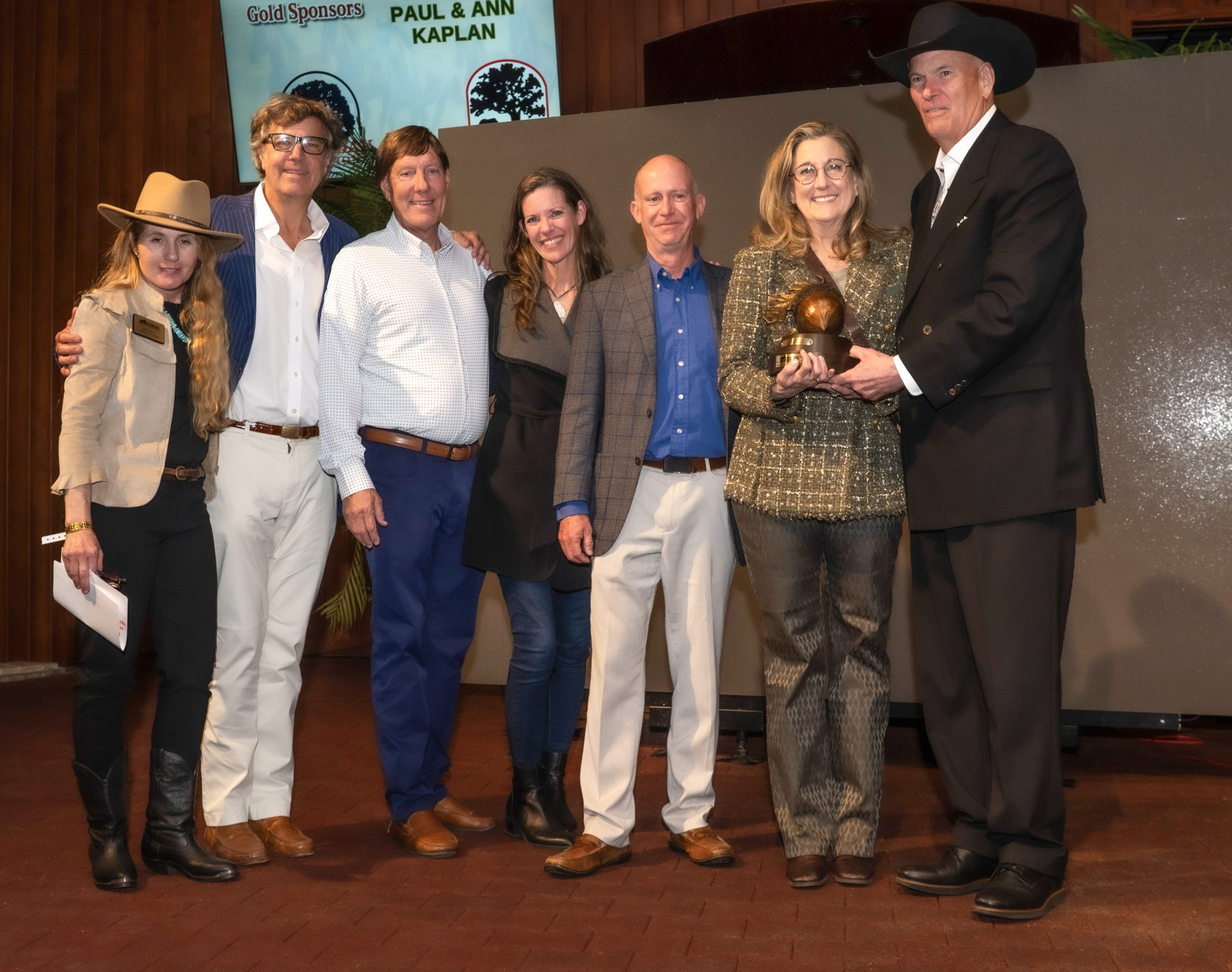
The Drake family was honored with the Acorn Conservation Award. L to R: HFF Director of Conservation, Busy Shires; George MacKay Drake, Jr., Trusten Holland Drake, Laura Drake McDonald, Bob Drake, Ann Louise Drake, and HFF President Bernie Little.
Harnessing Health
Amy Mangan, Advent Health Ocala Foundation executive director, spoke about the Harnessing Health: Equine Worker Health Initiative that reduces barriers to health care for equine workers by providing mobile care. The hospital-funded health care navigator operates a mobile clinic van to travel to local farms and provide onsite health care services to equine workers.
Through their Harnessing Health: Equine Worker Health Initiative, a bilingual health care navigator and mobile clinic brings essential wellness visits, chronic care, and health education directly to farms across Marion County — reducing barriers and supporting the workers who care for our horses every day. We are proud to have AdventHealth Ocala as a Title Sponsor of the 2025 Conservation Summit, and are grateful for their commitment to Horse Farms Forever, and the people of Marion County!
Delivered by Brook Ledge
Thank you to our vendors for their support!
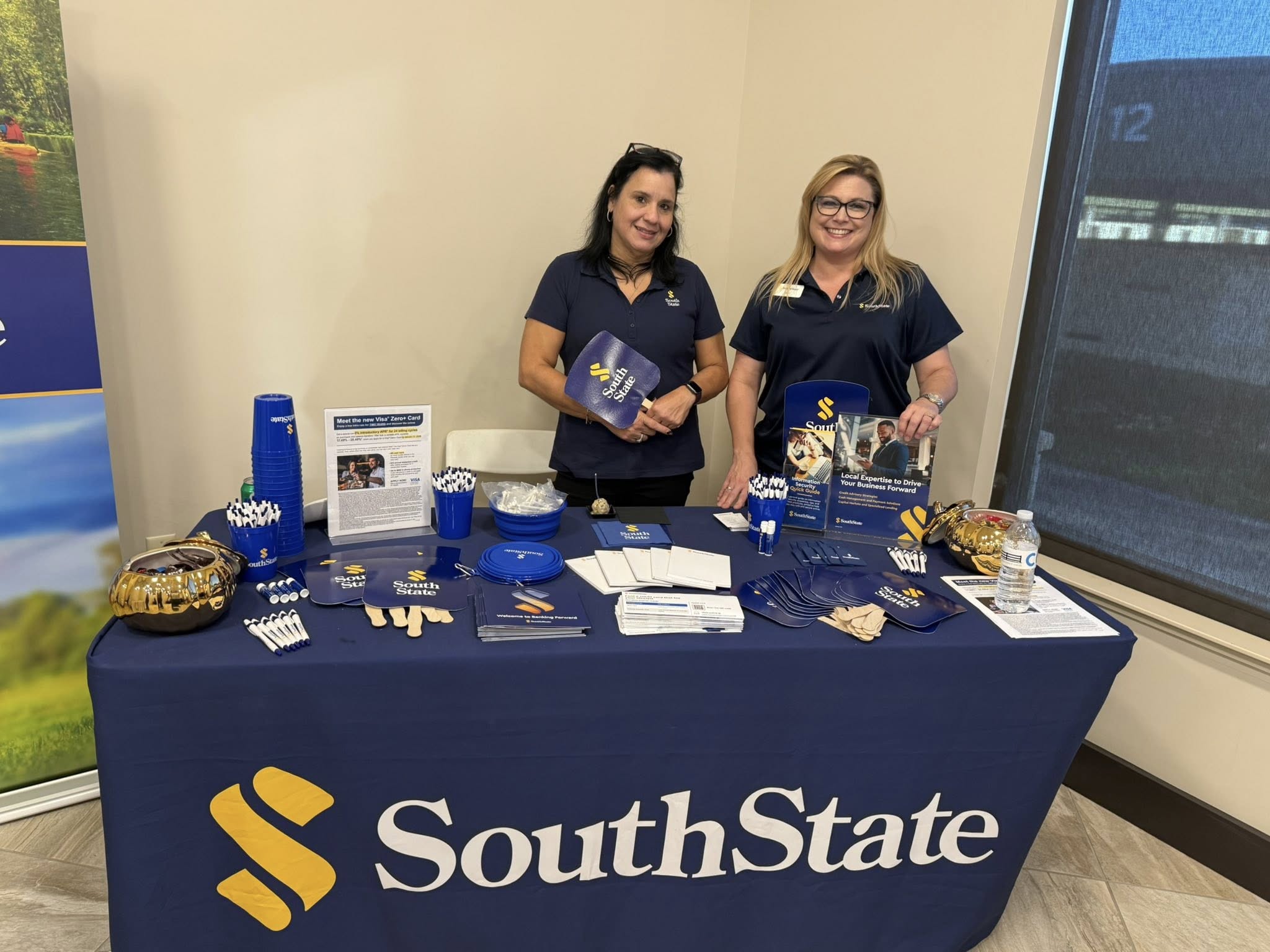
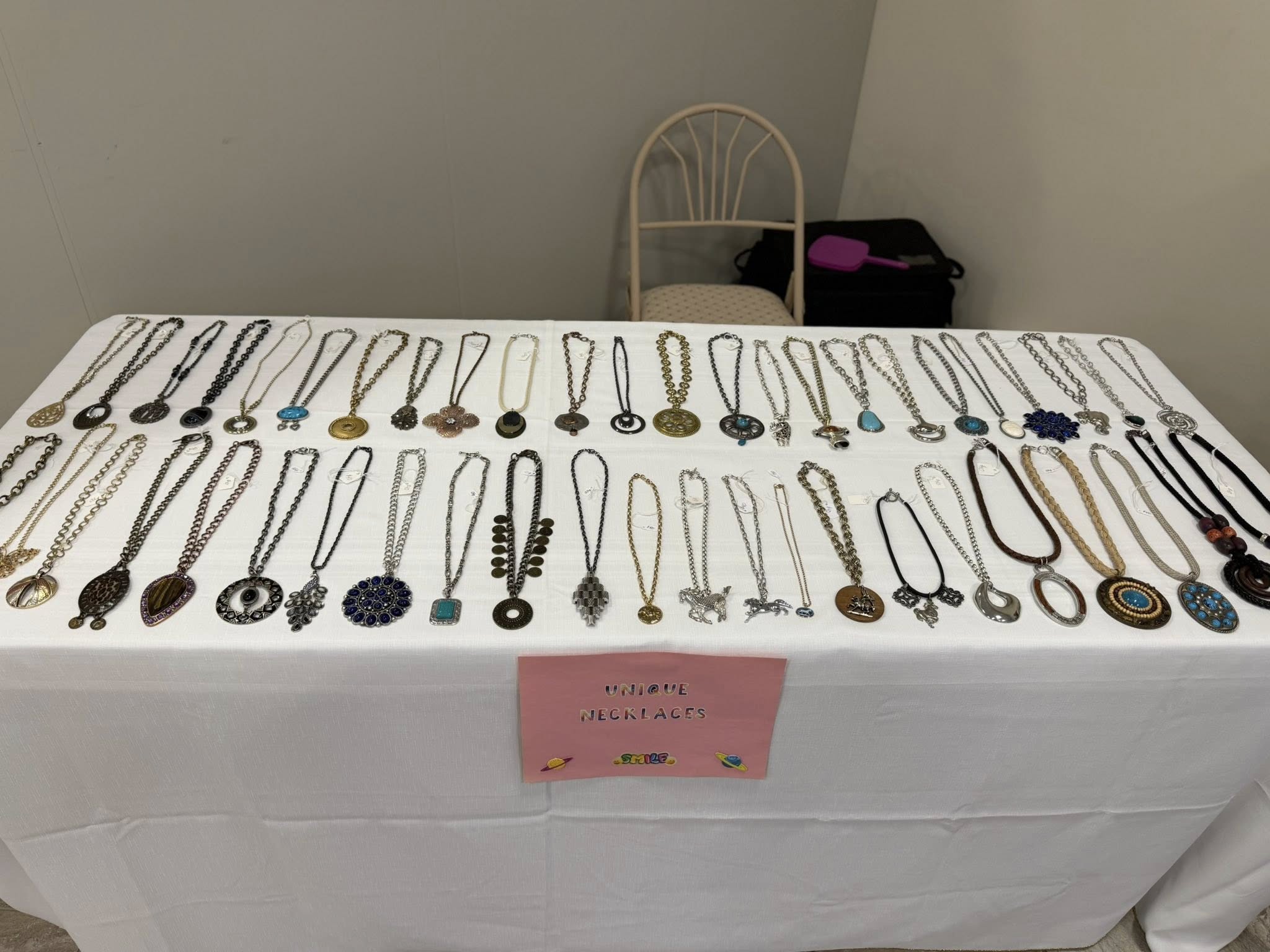
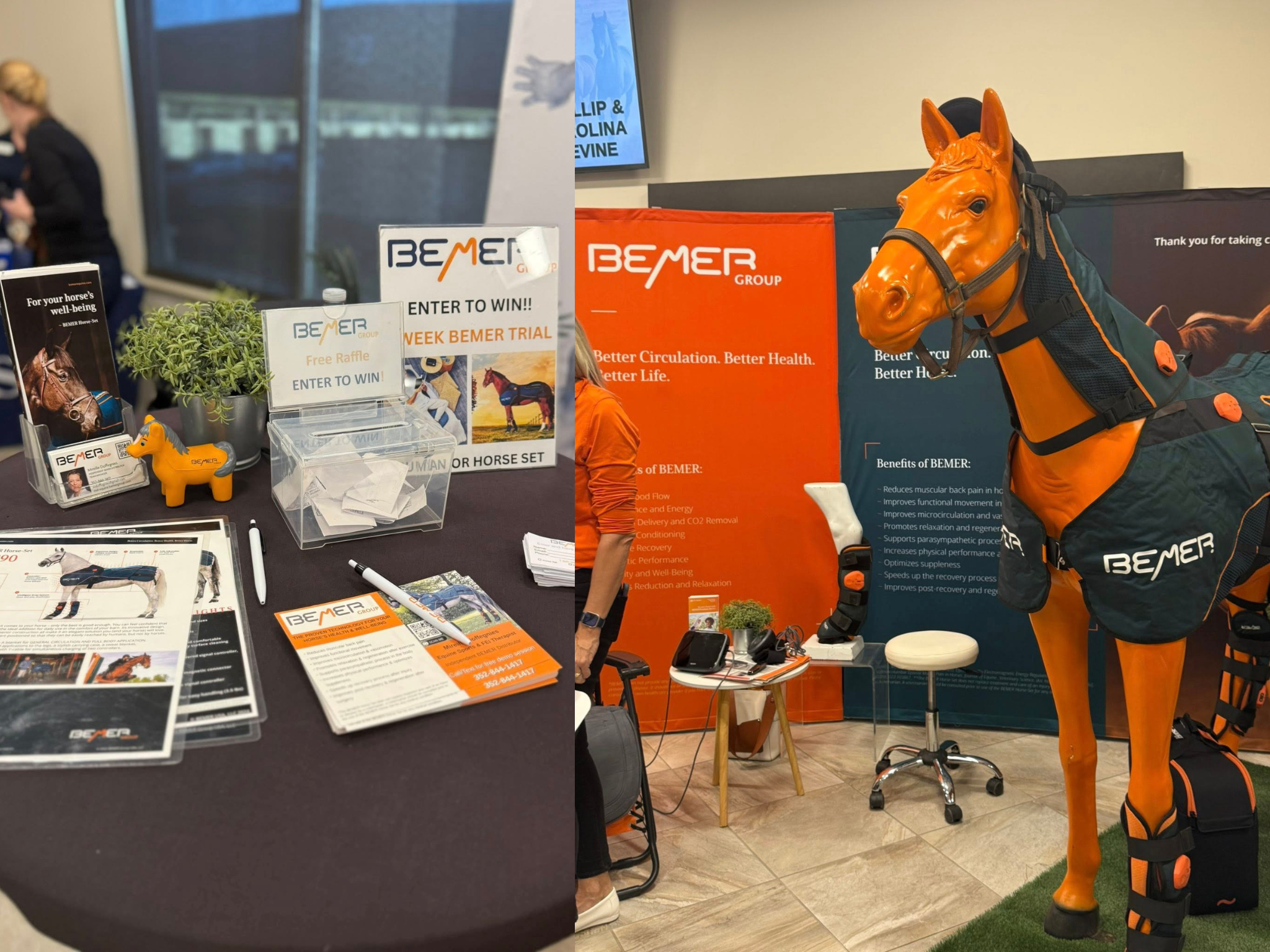
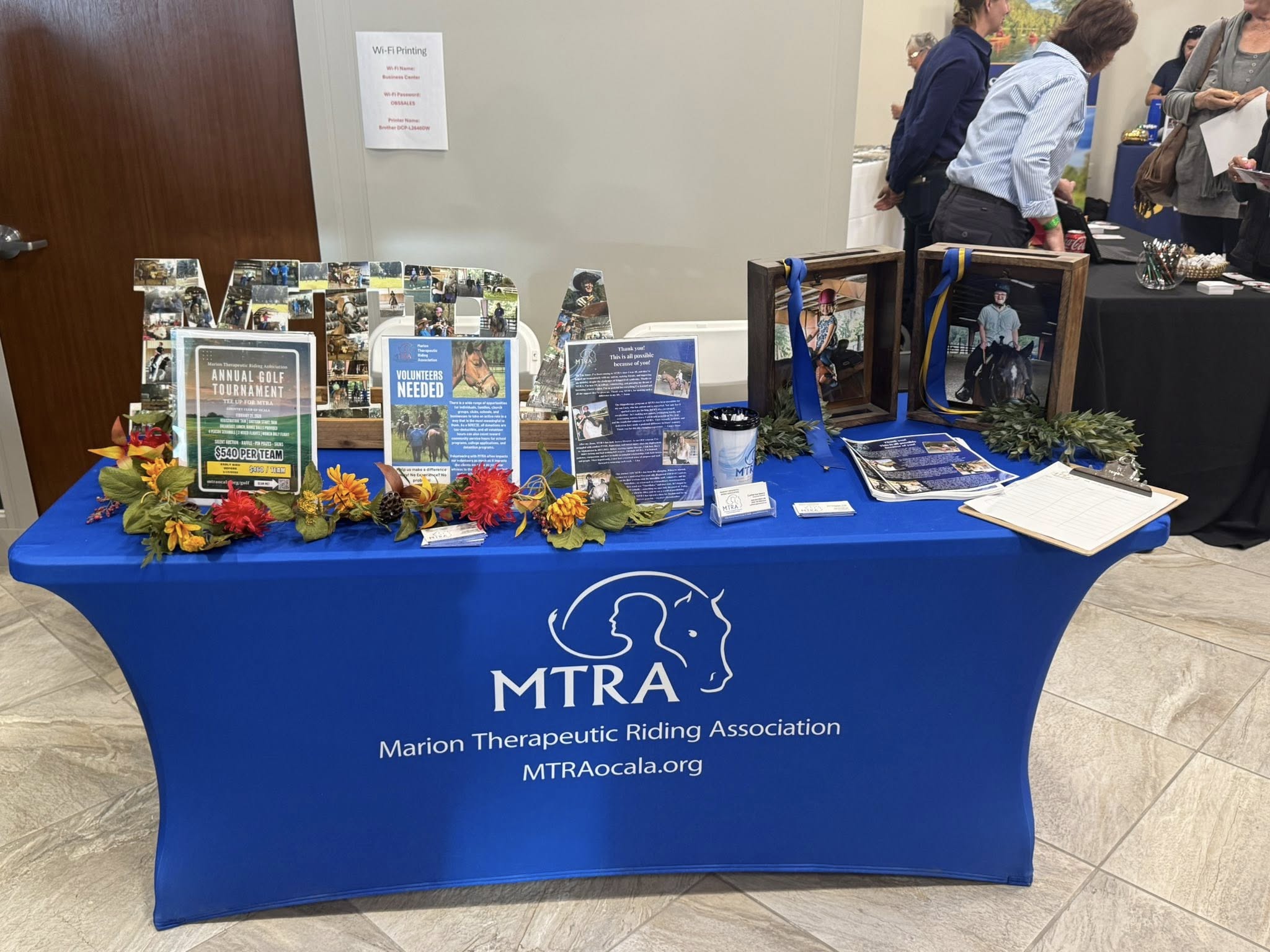
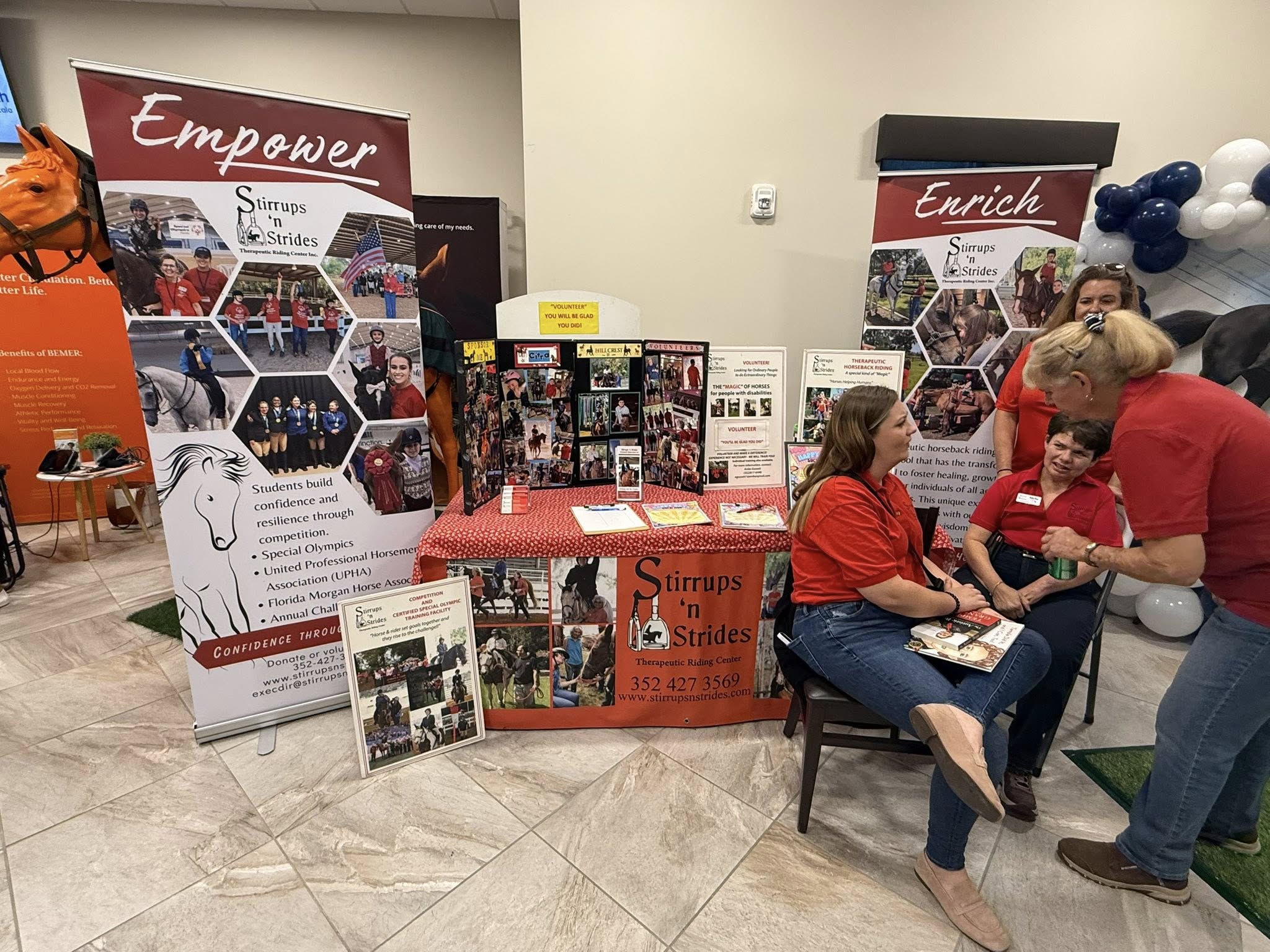
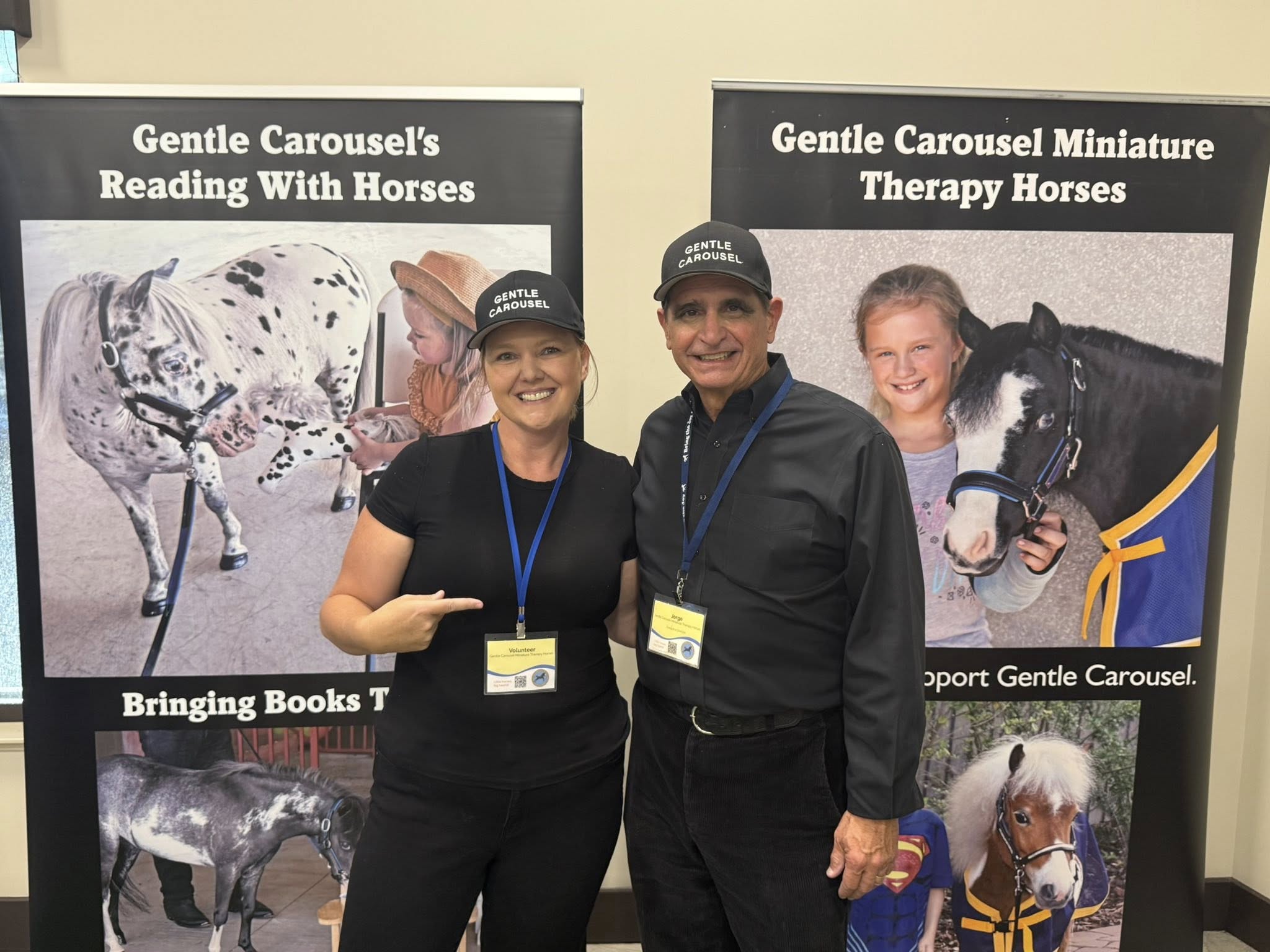
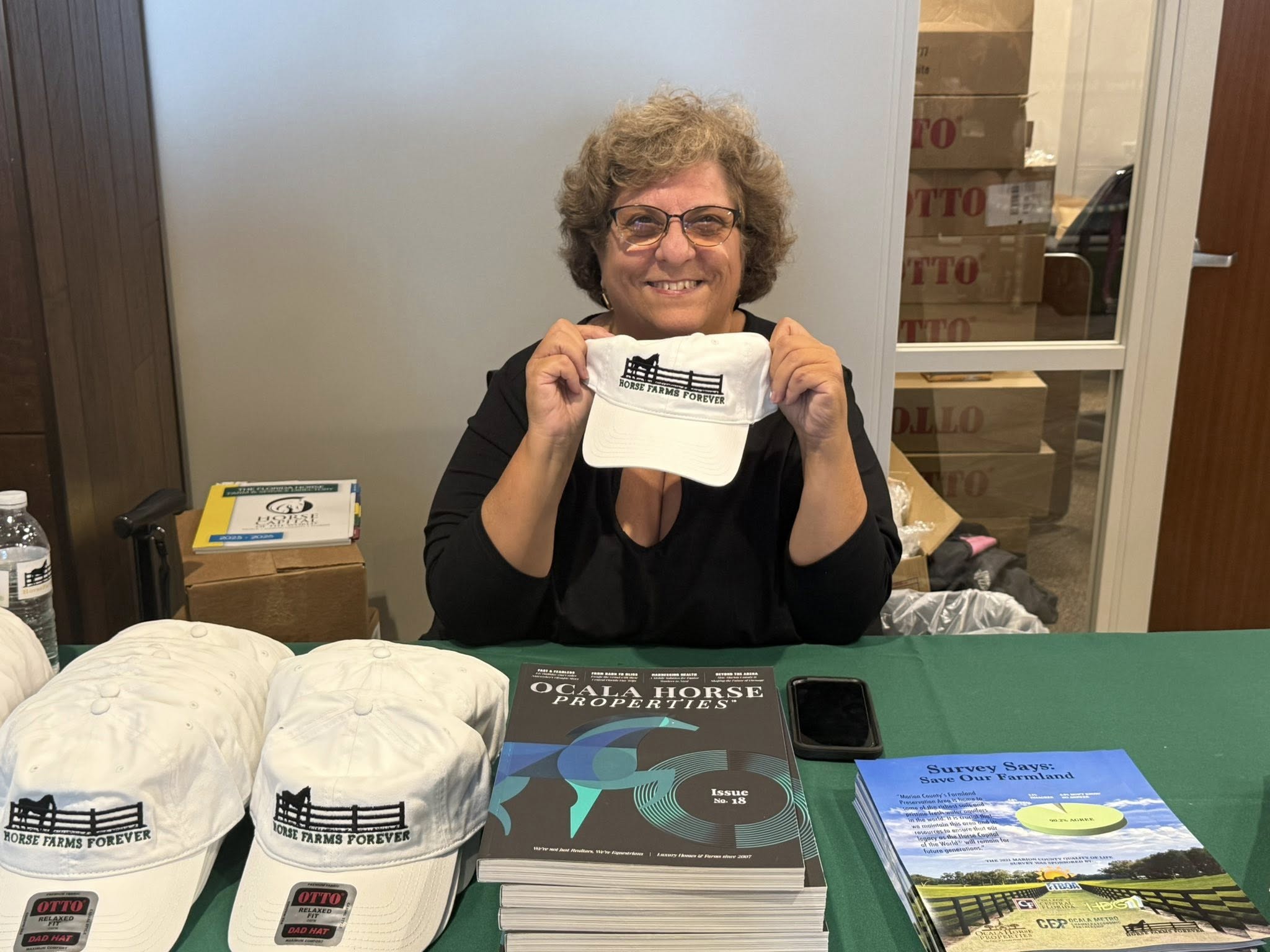
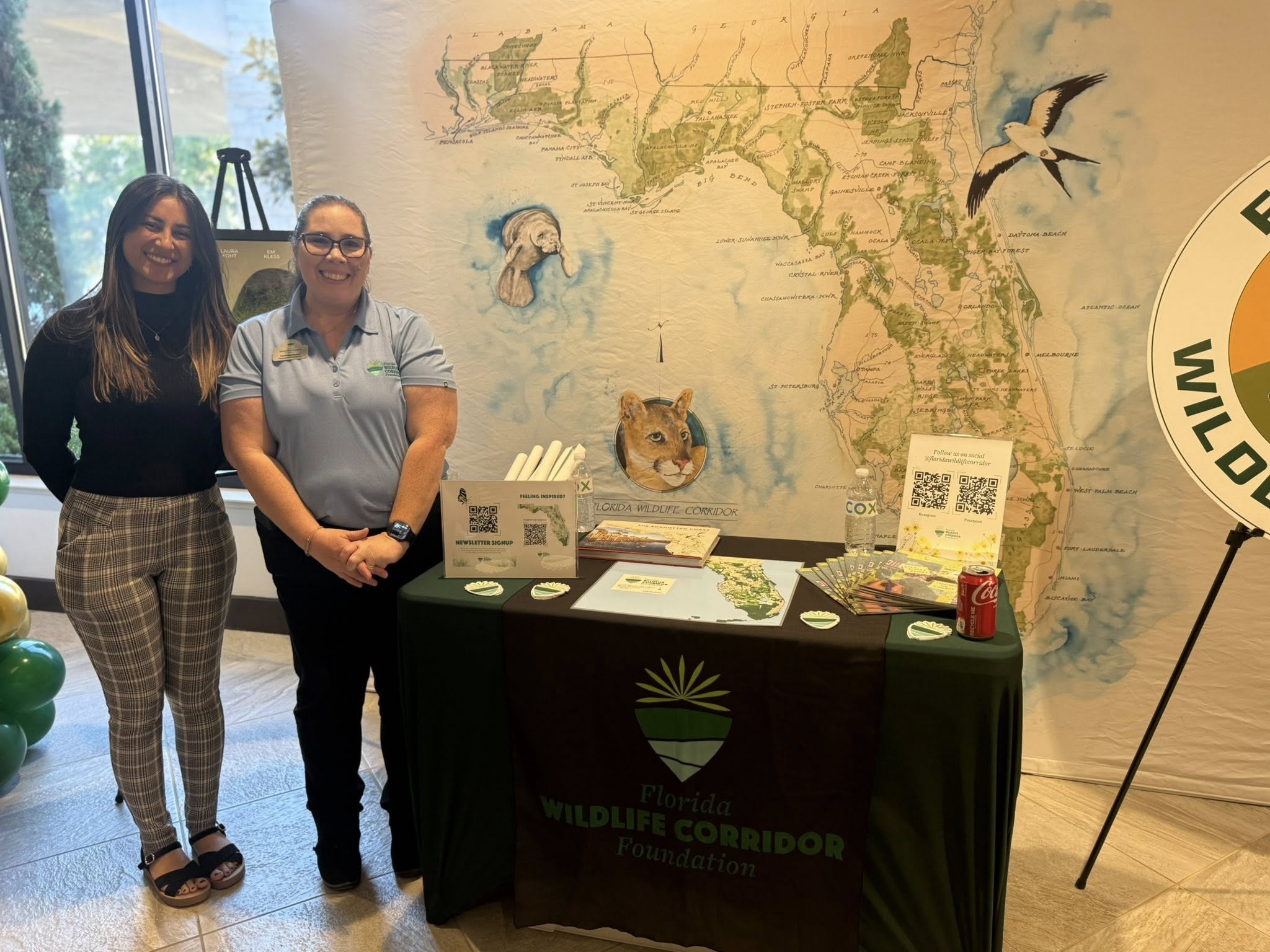
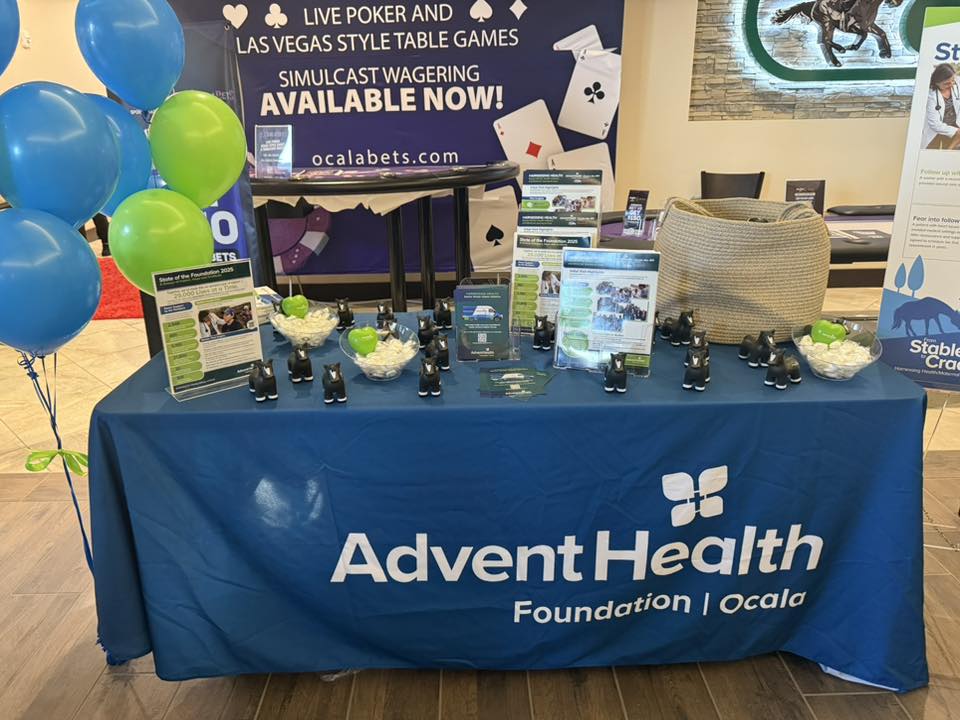
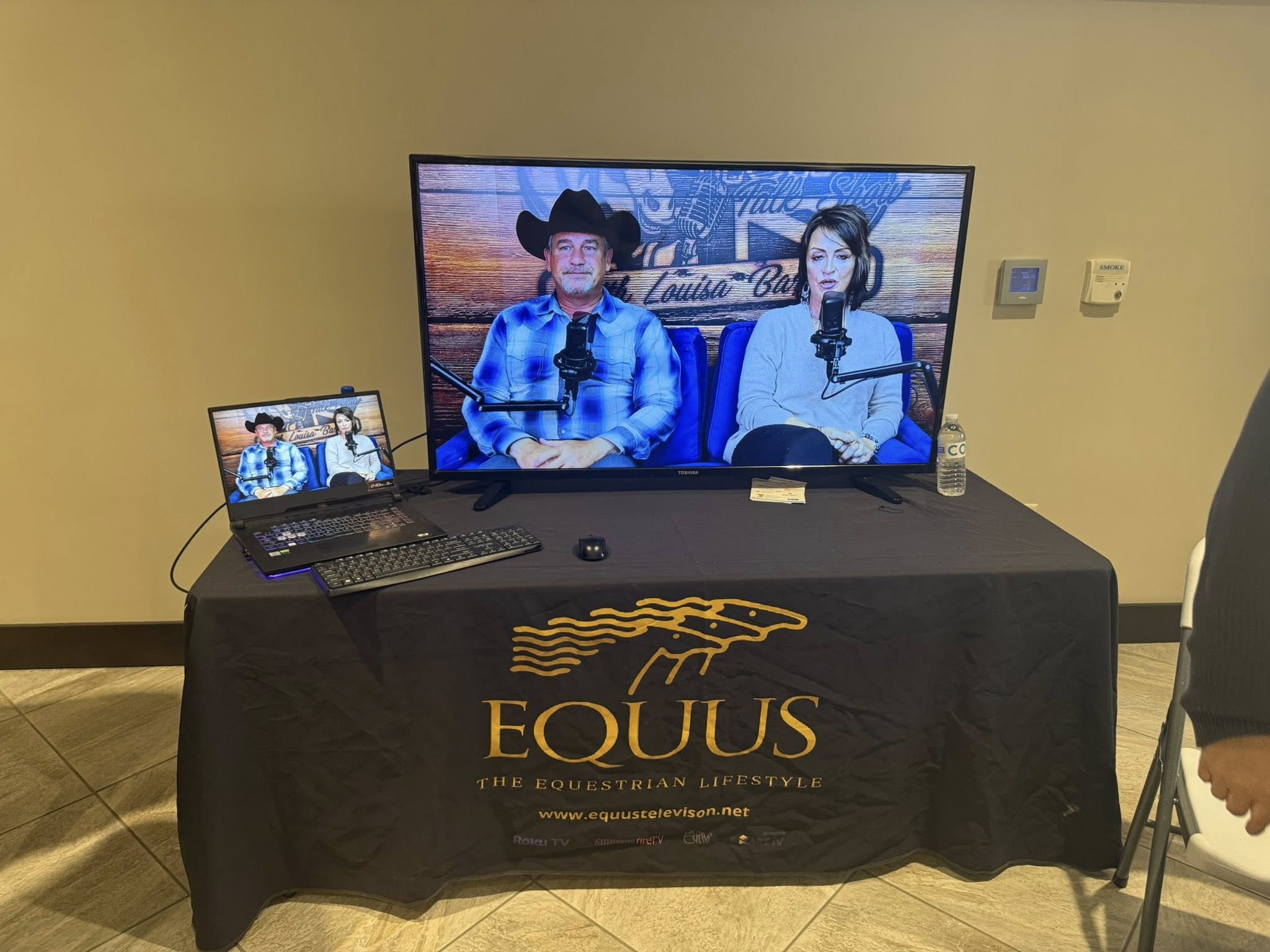

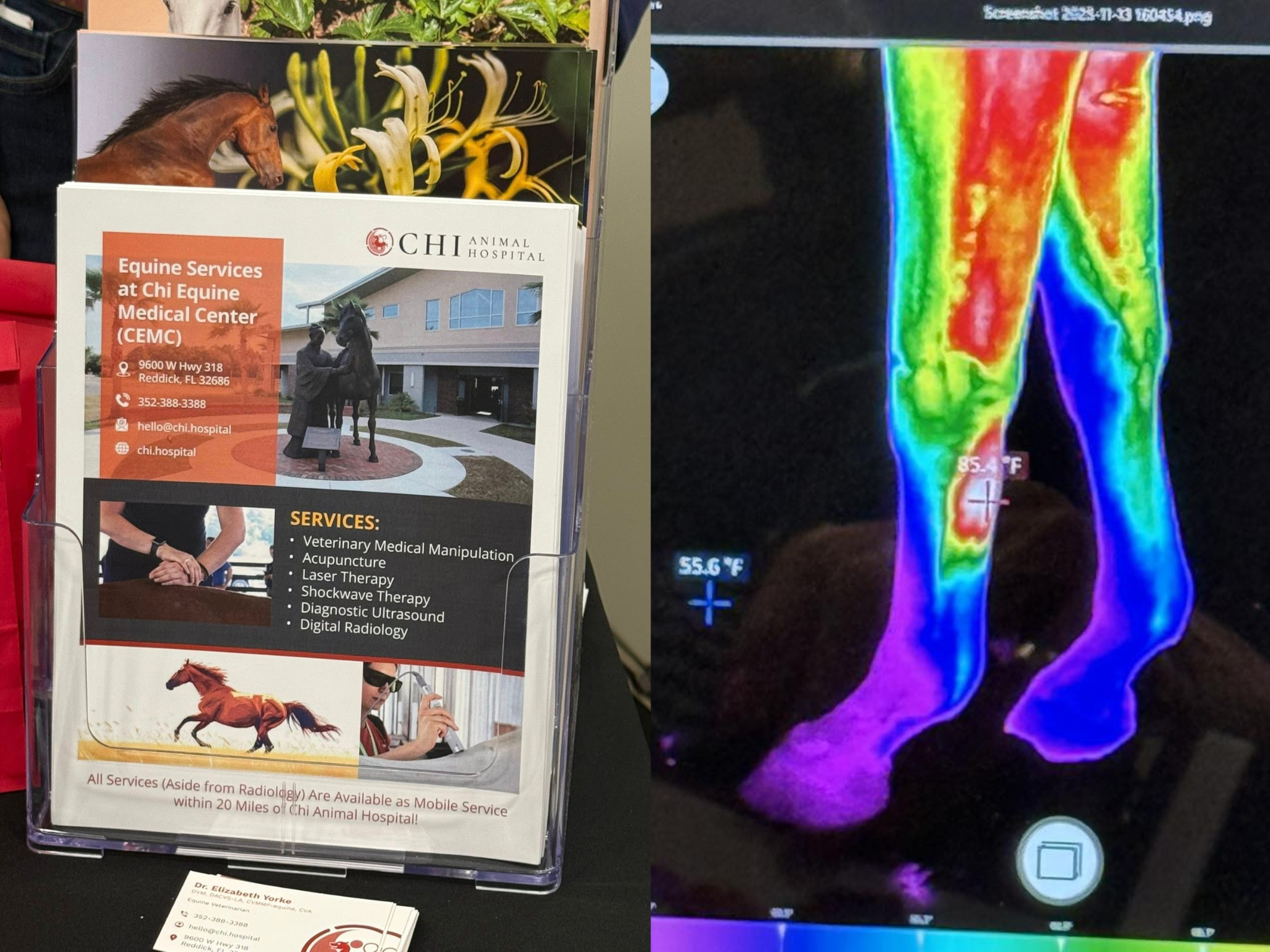












Vendor Photos Courtesy of: The Bradford Connection
These are just some of the comments we have received about Dr. Grandin’s keynote titled “How Horse Think.”
“Truly, once in a lifetime to meet Dr. Grandin. Still in awe!”
“Profound impact!”
“Wonderful opportunity to hear her speak! Amazing insights!”
“Fabulous presentation! She is an icon!”
